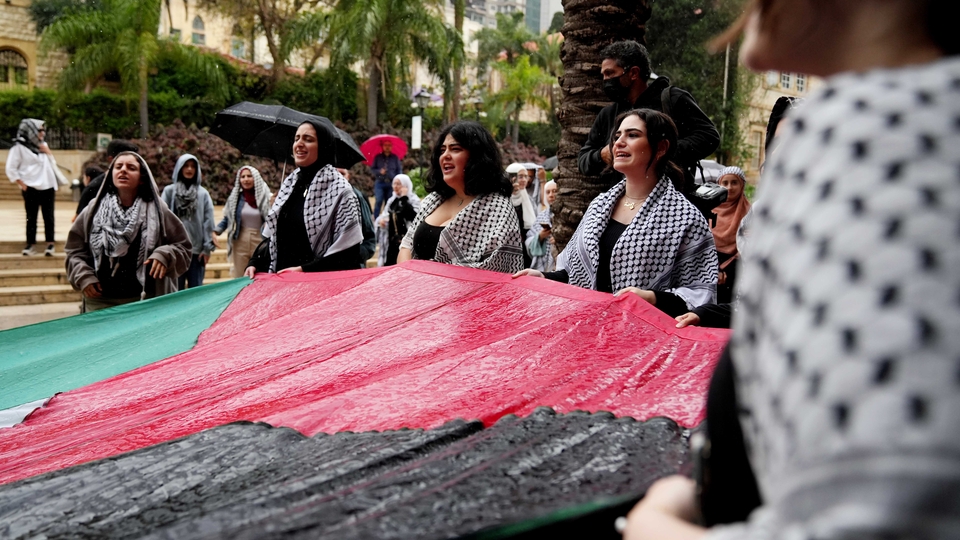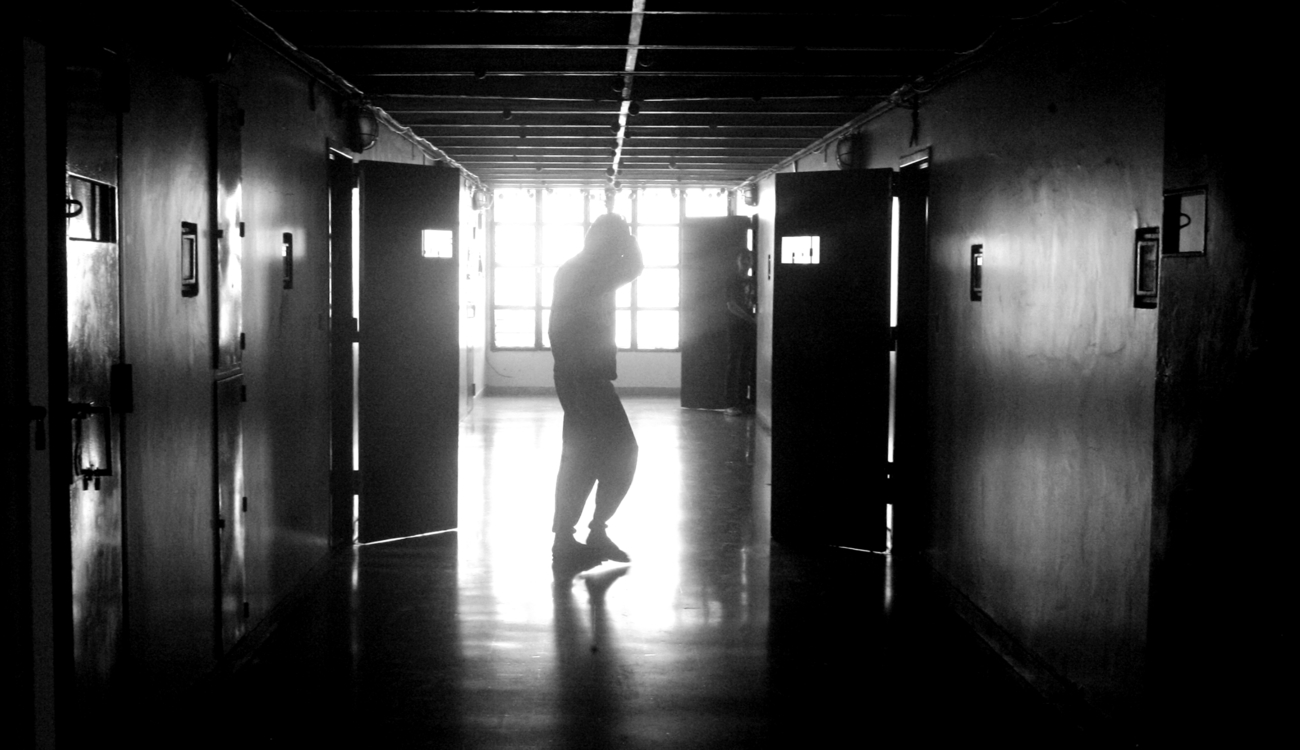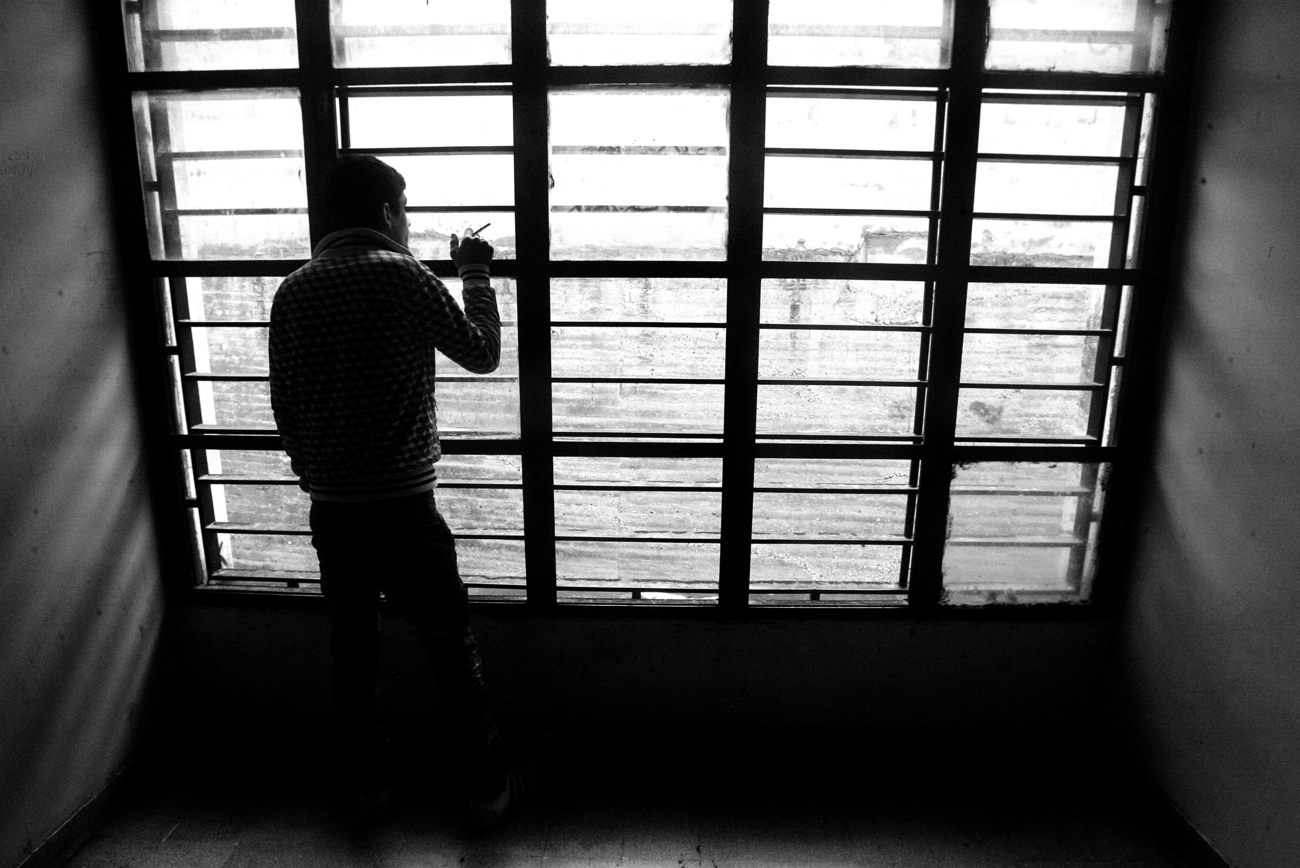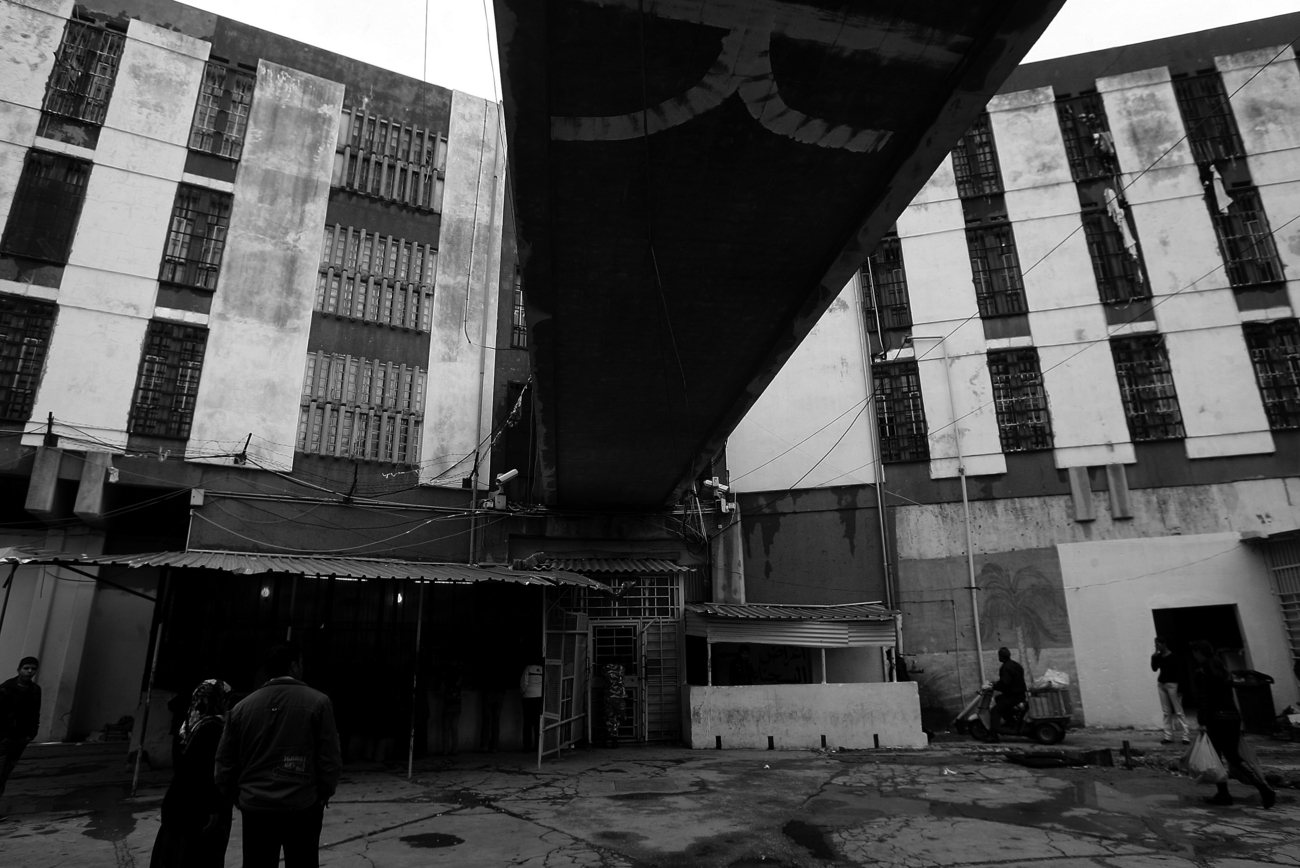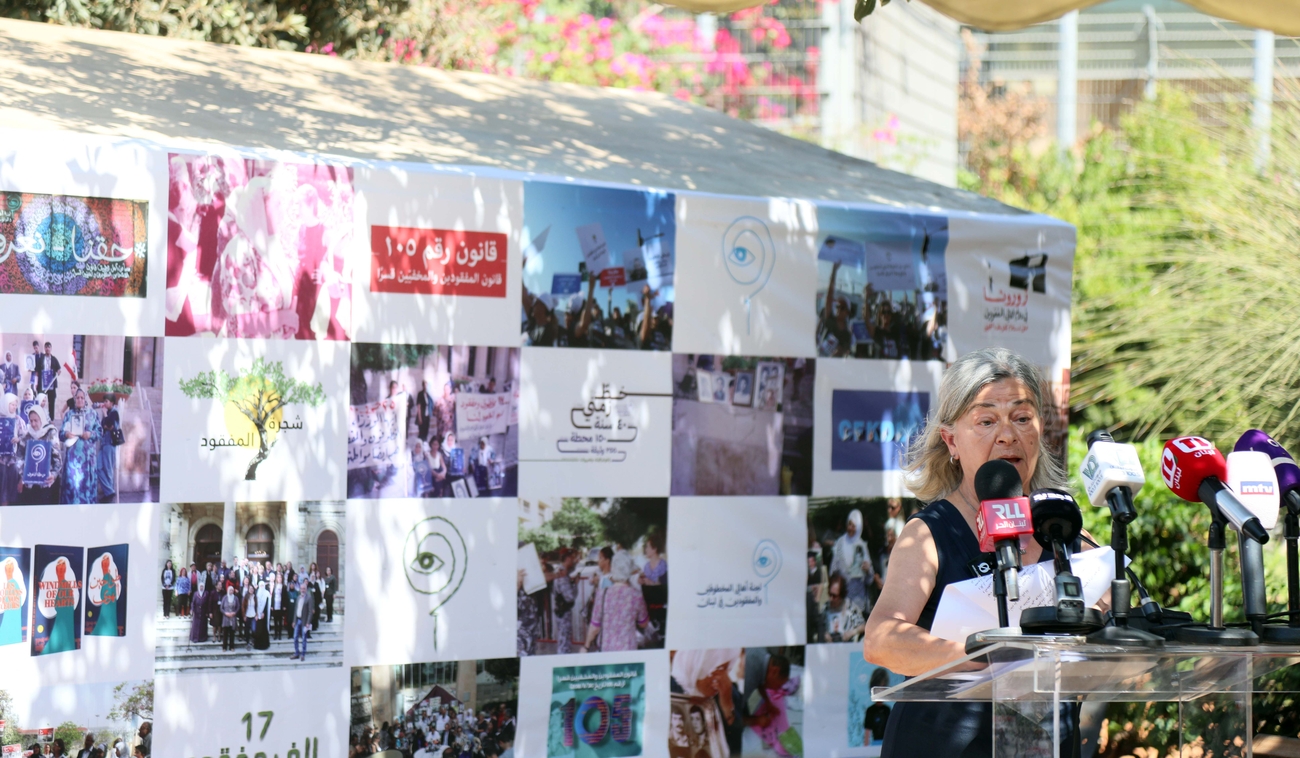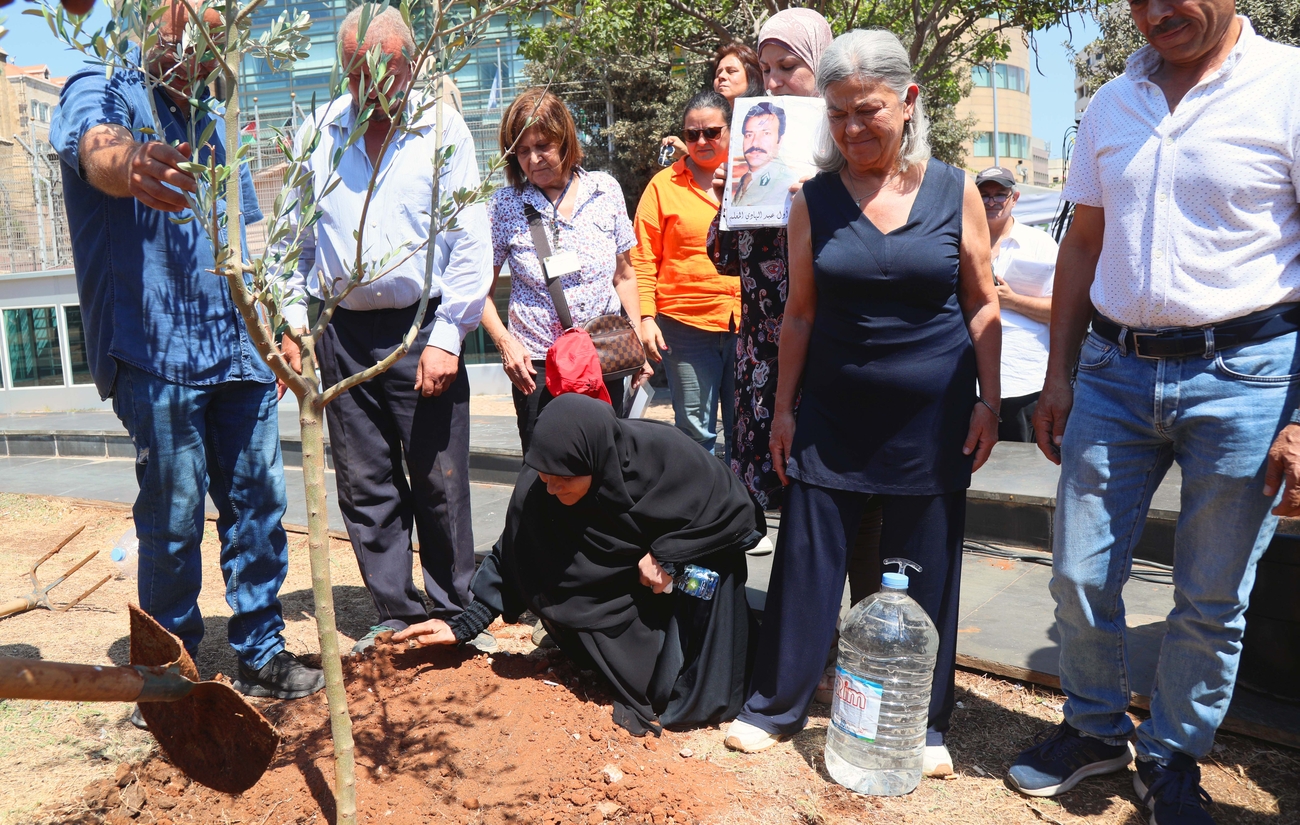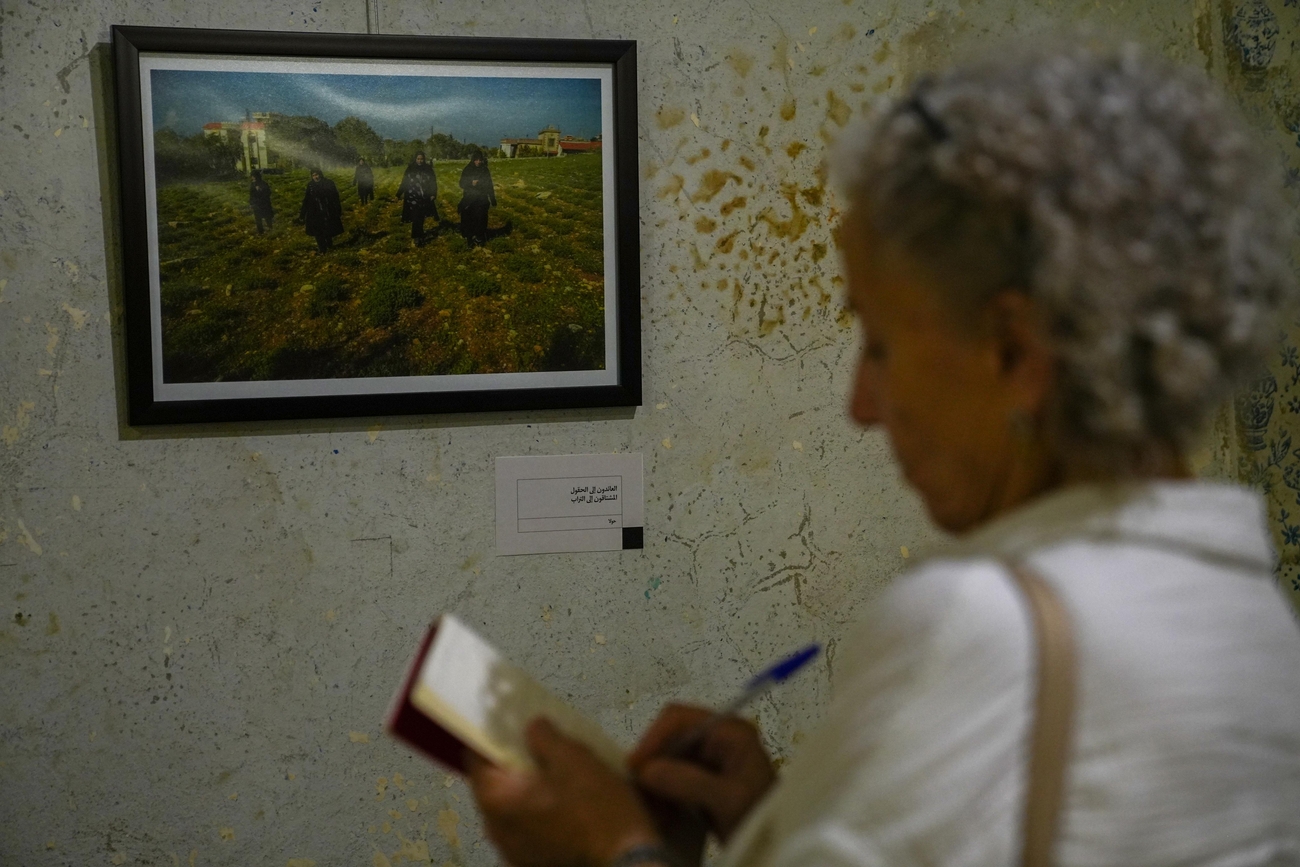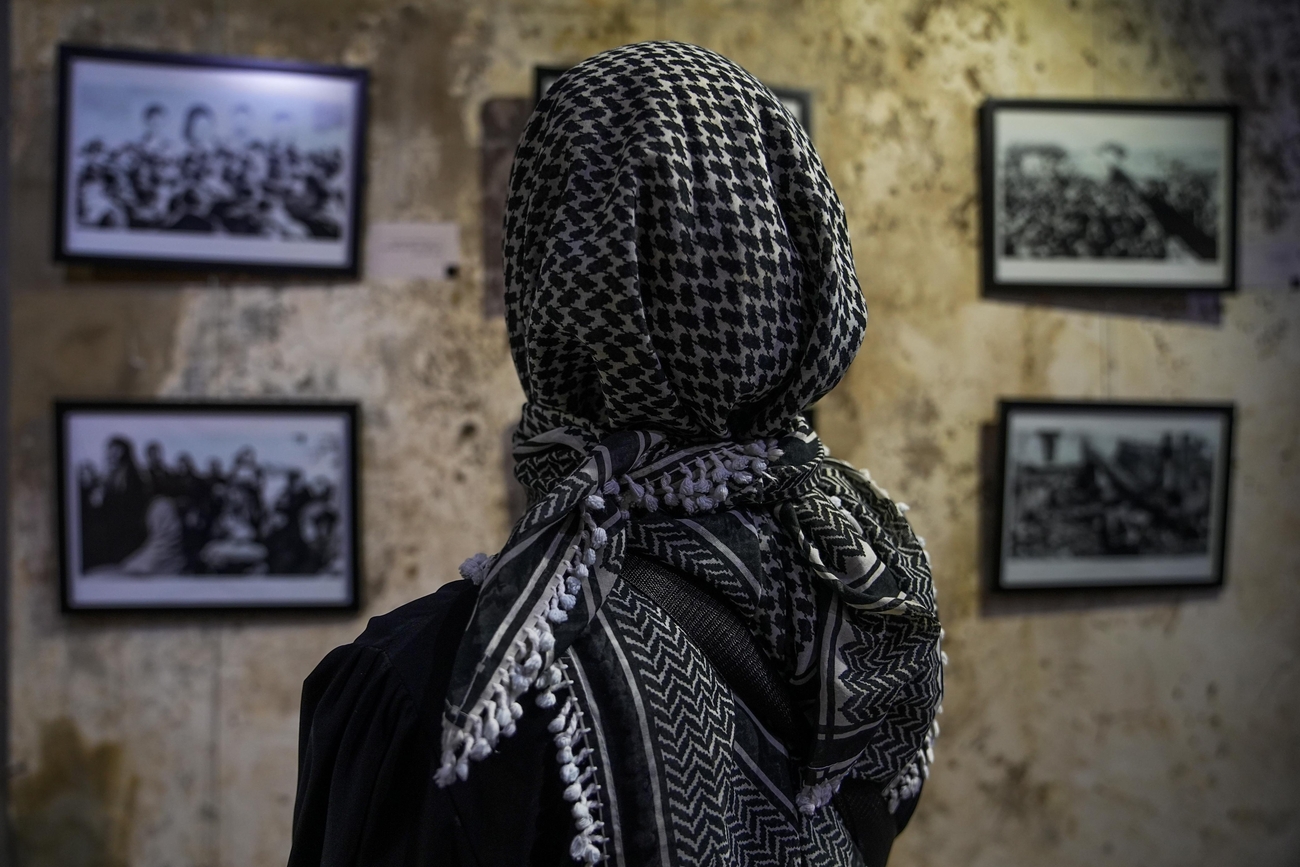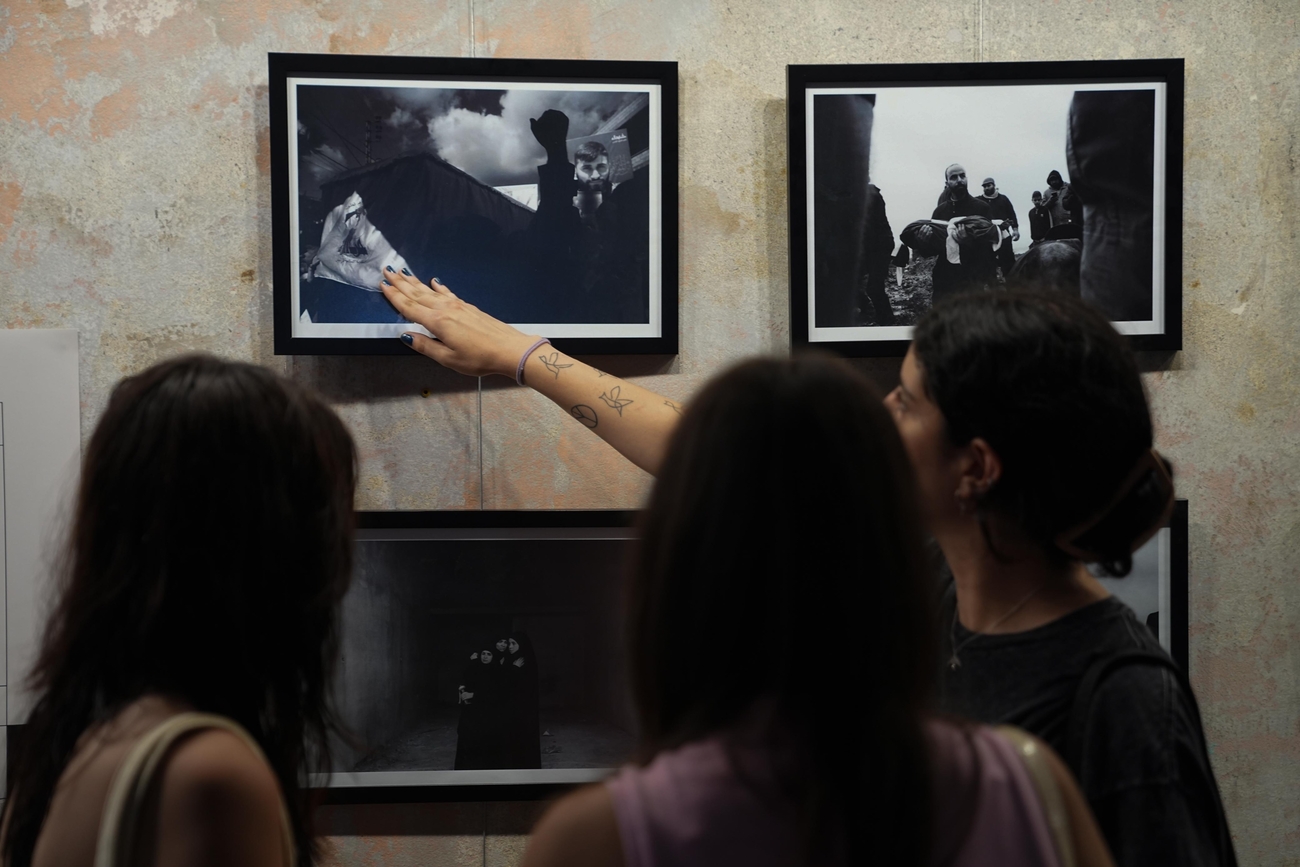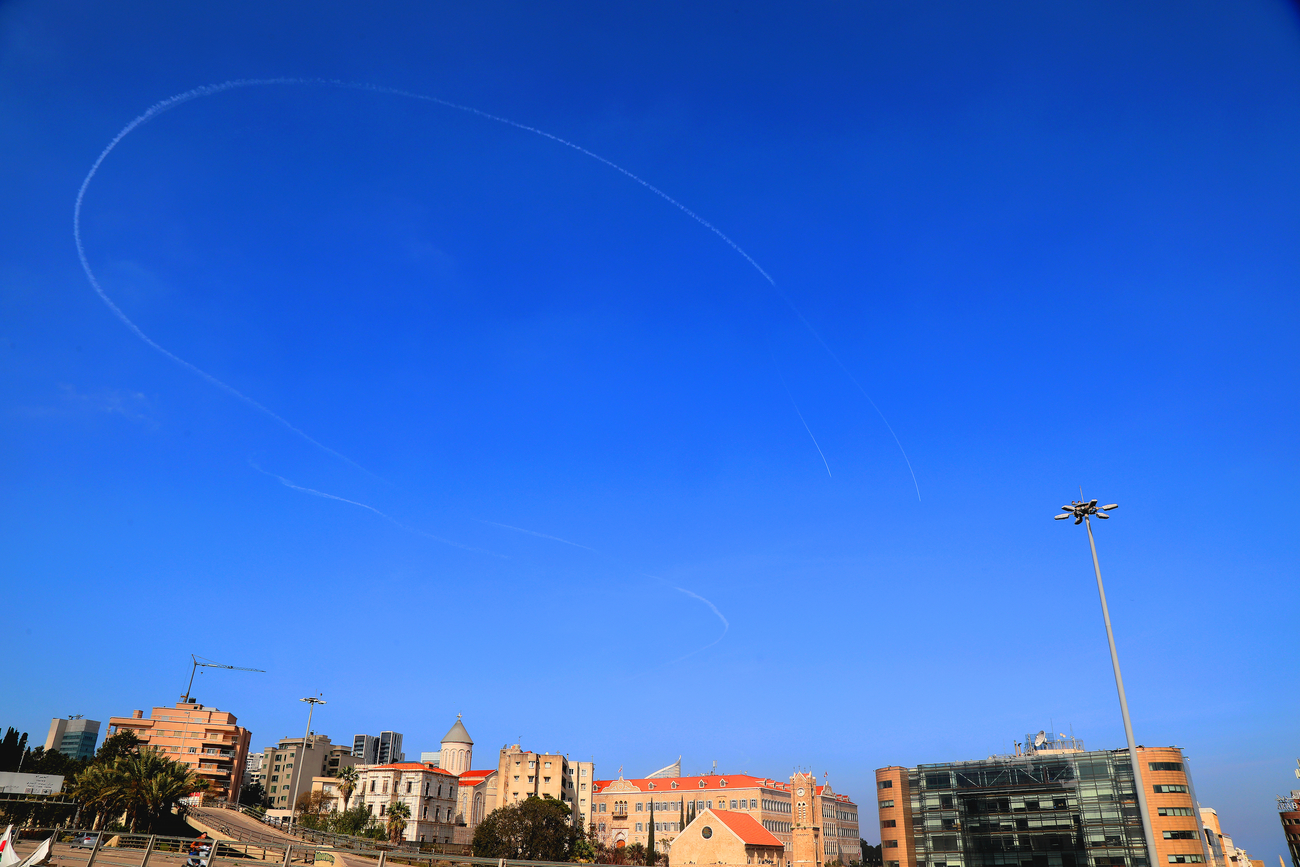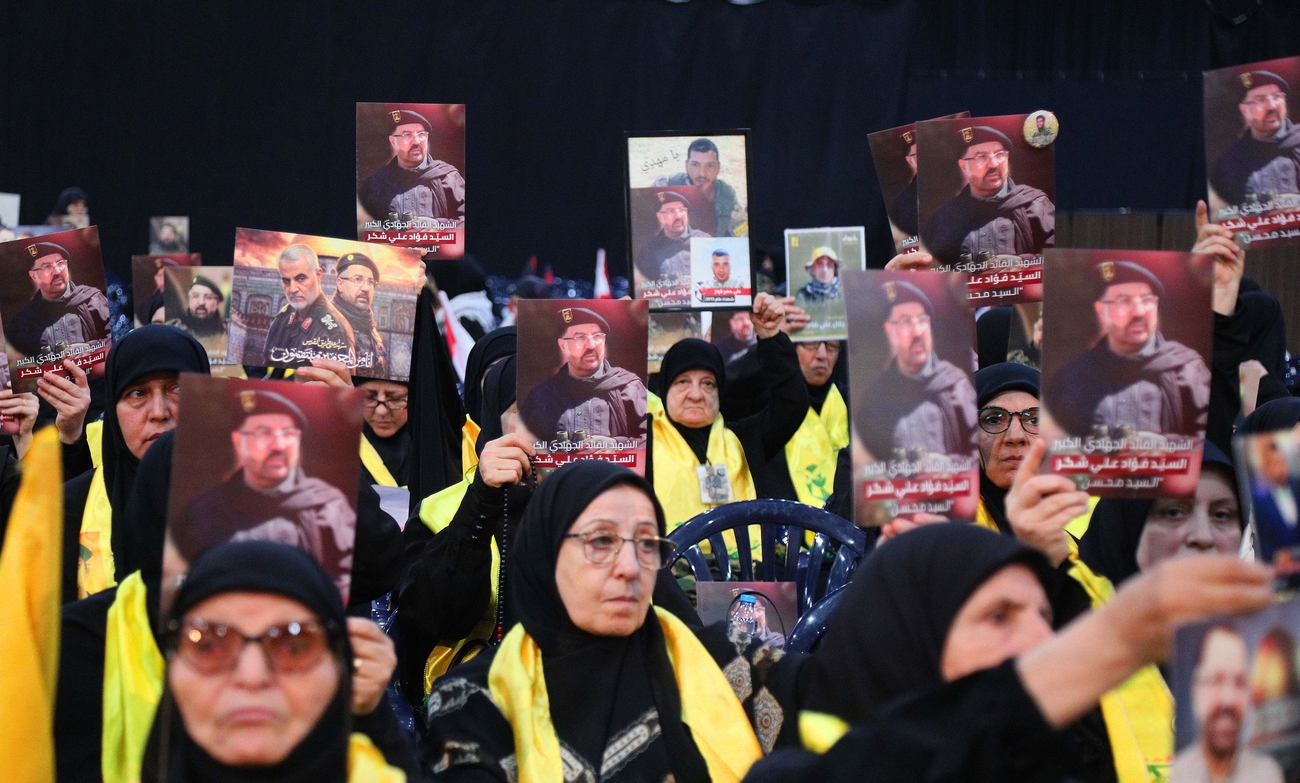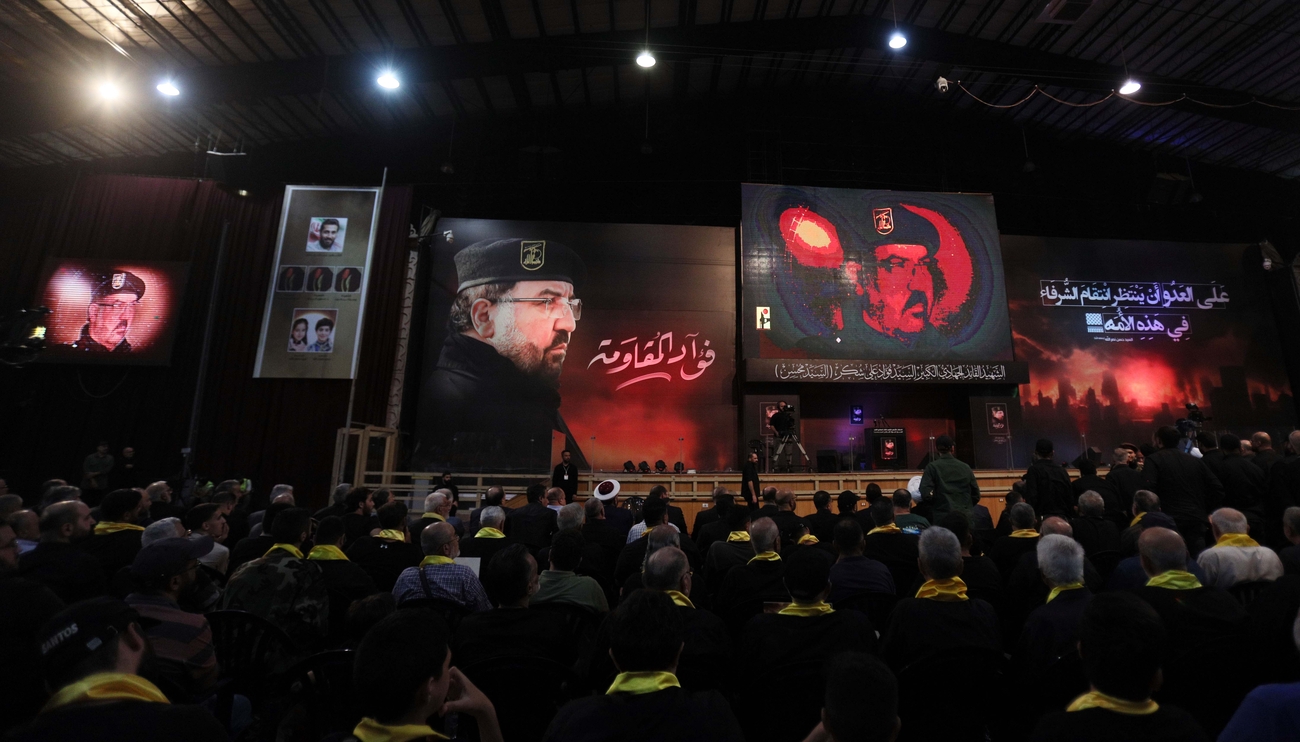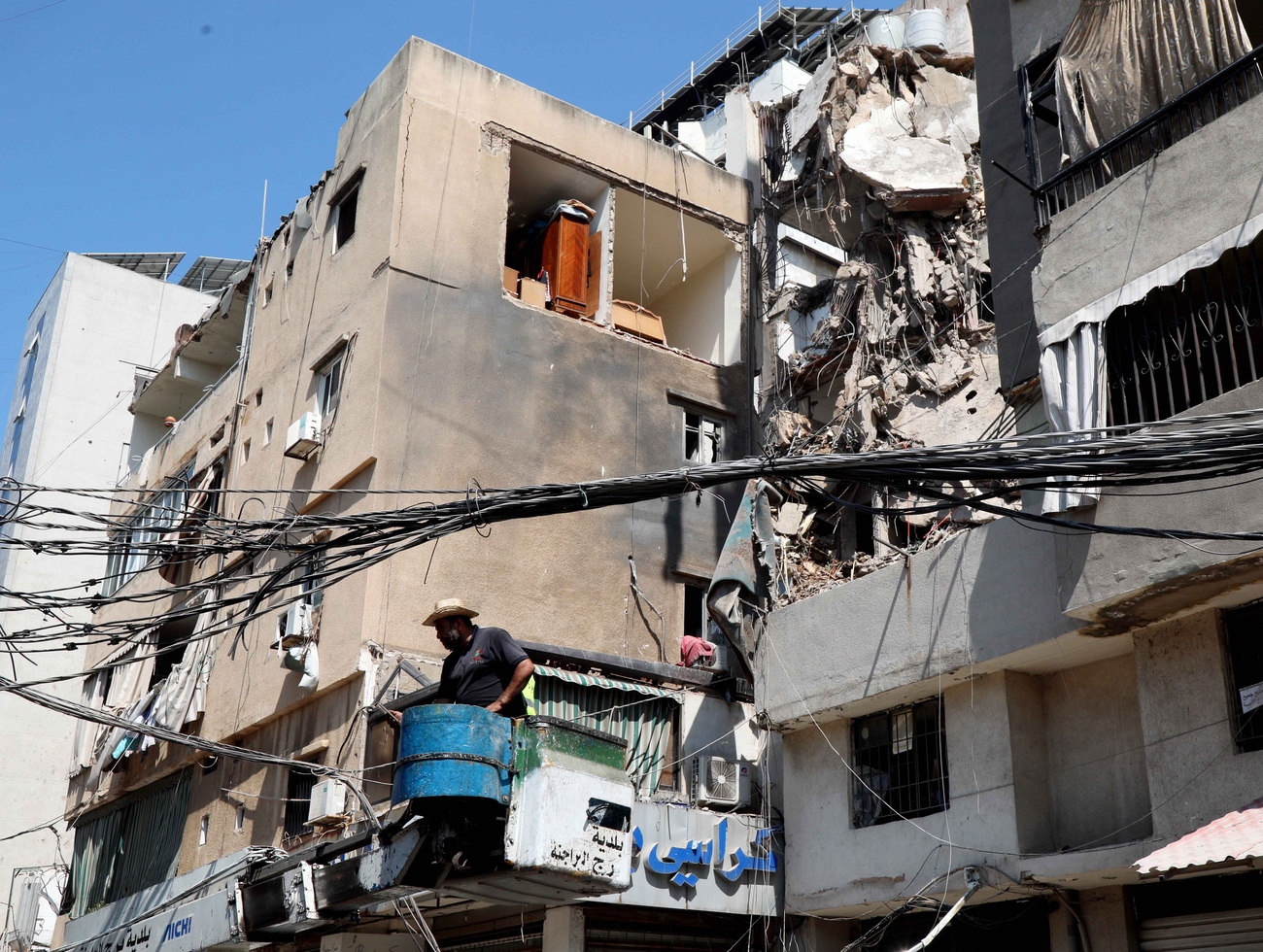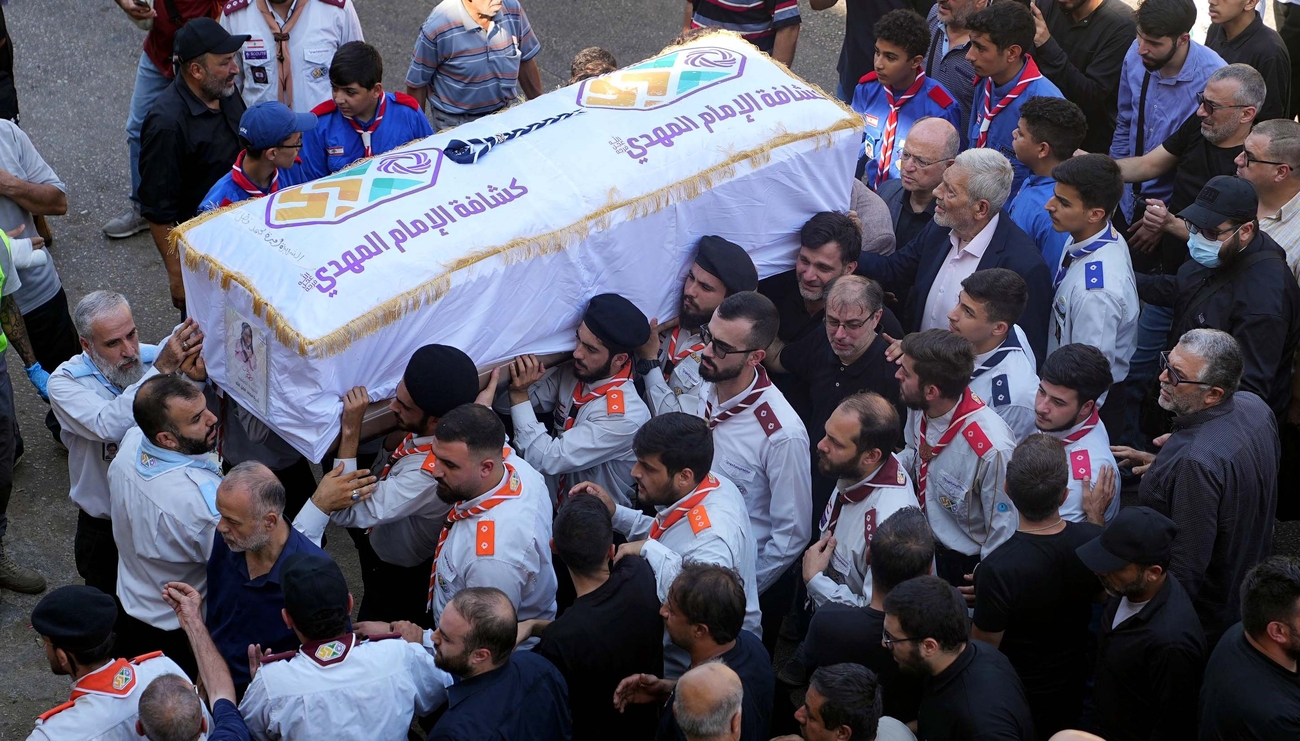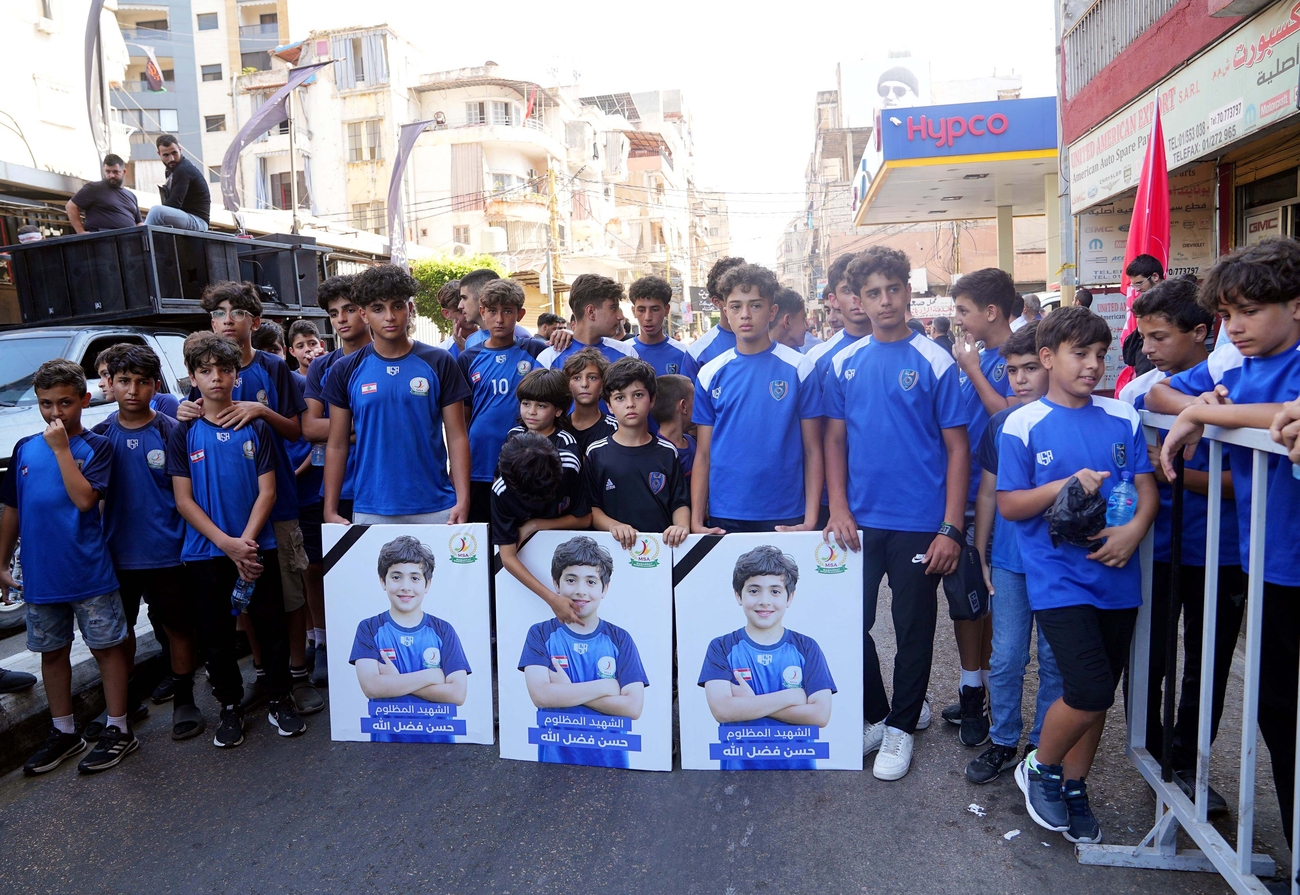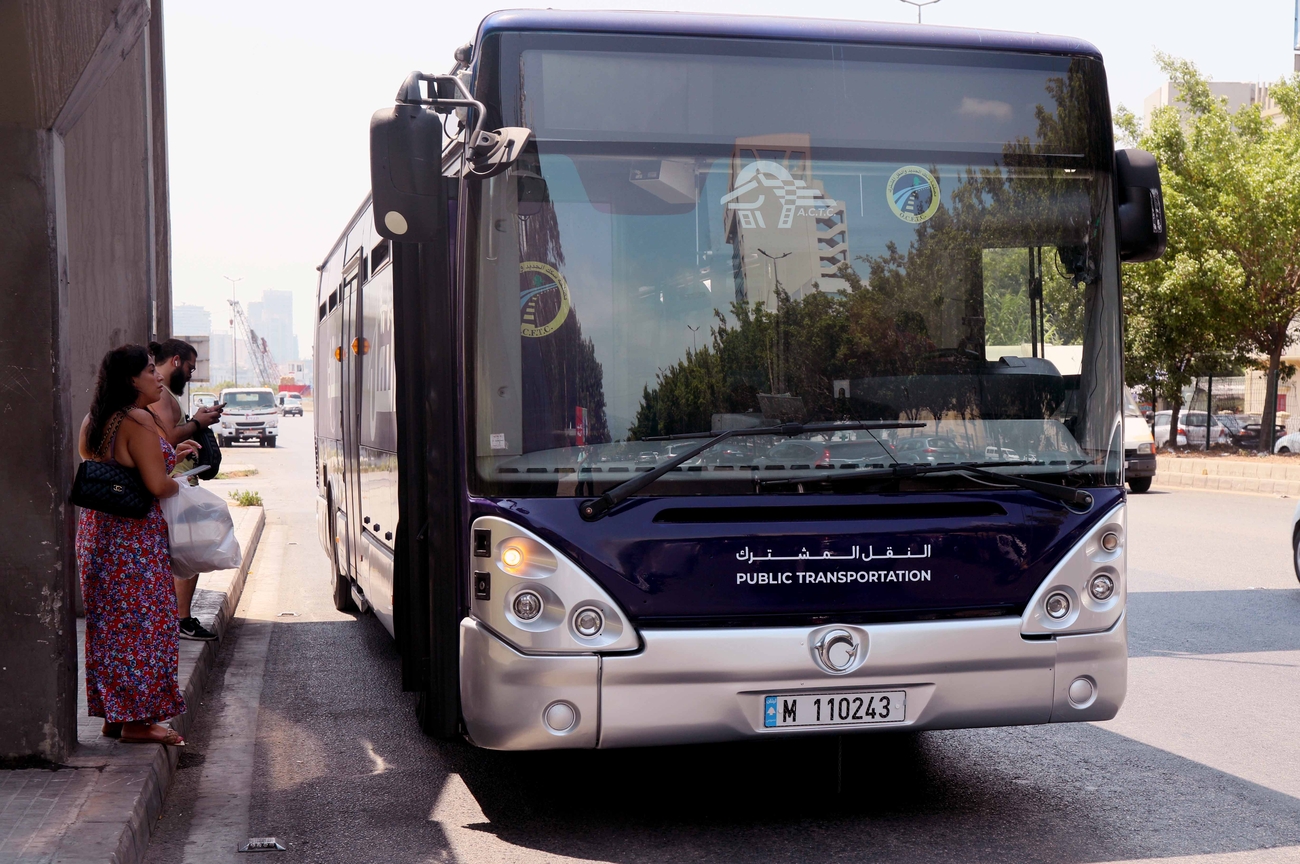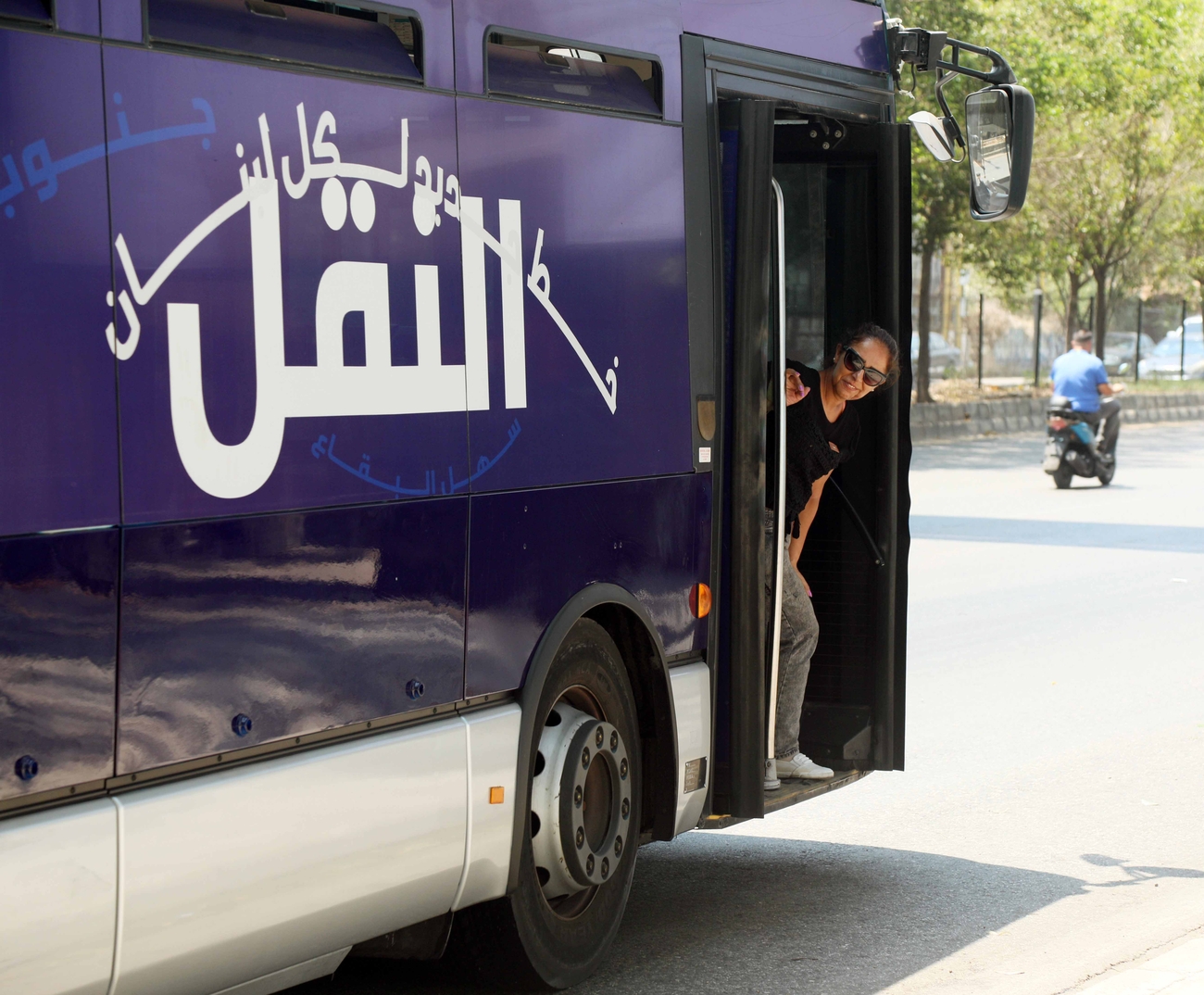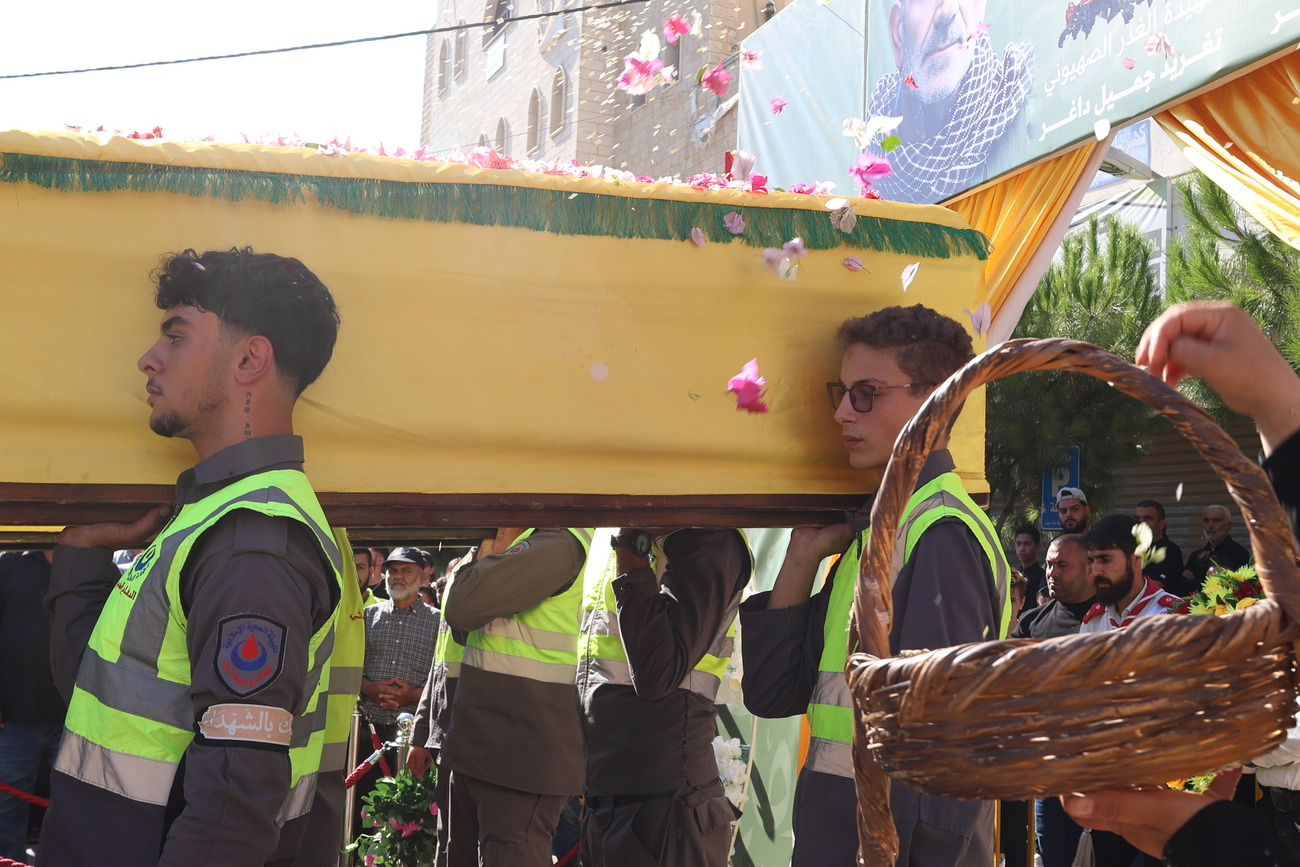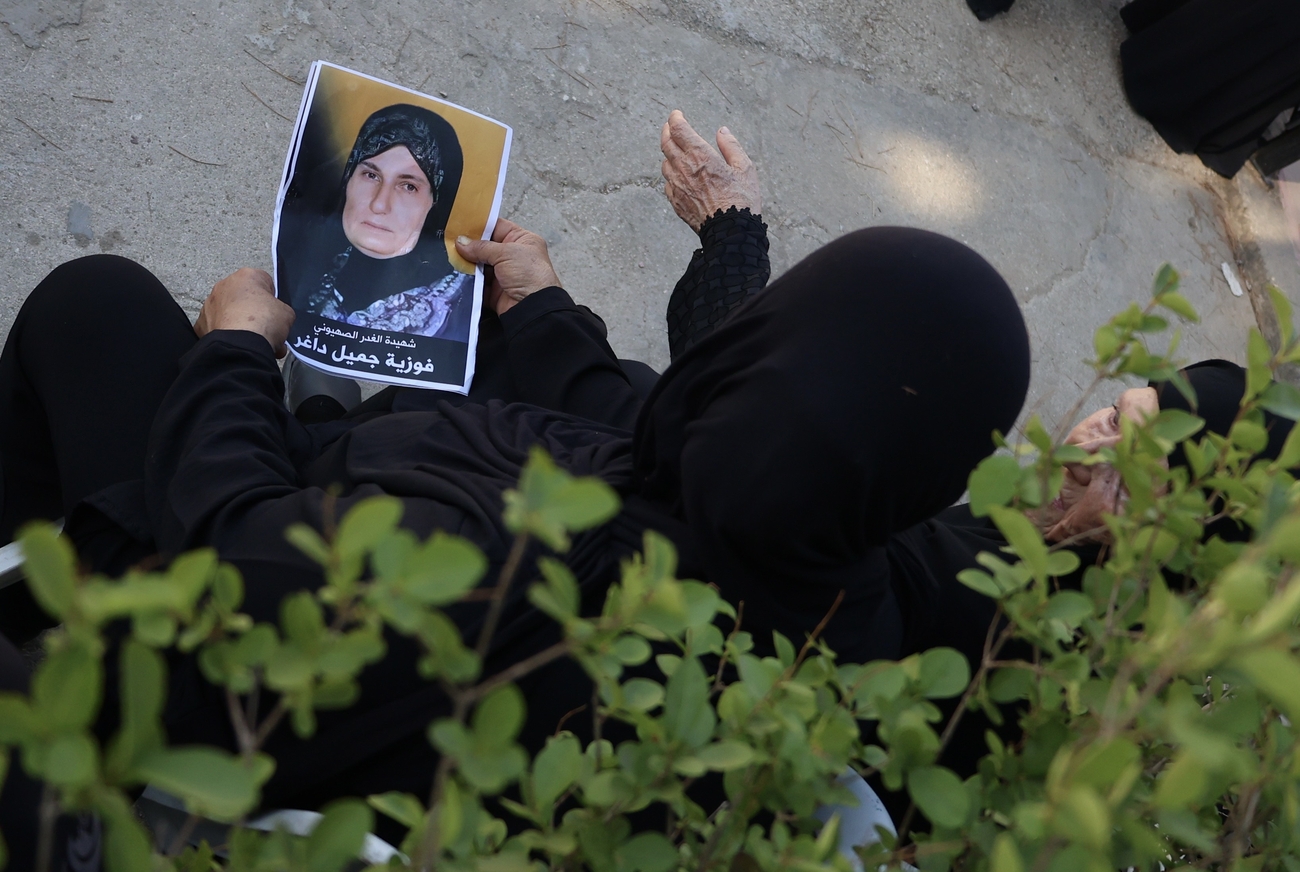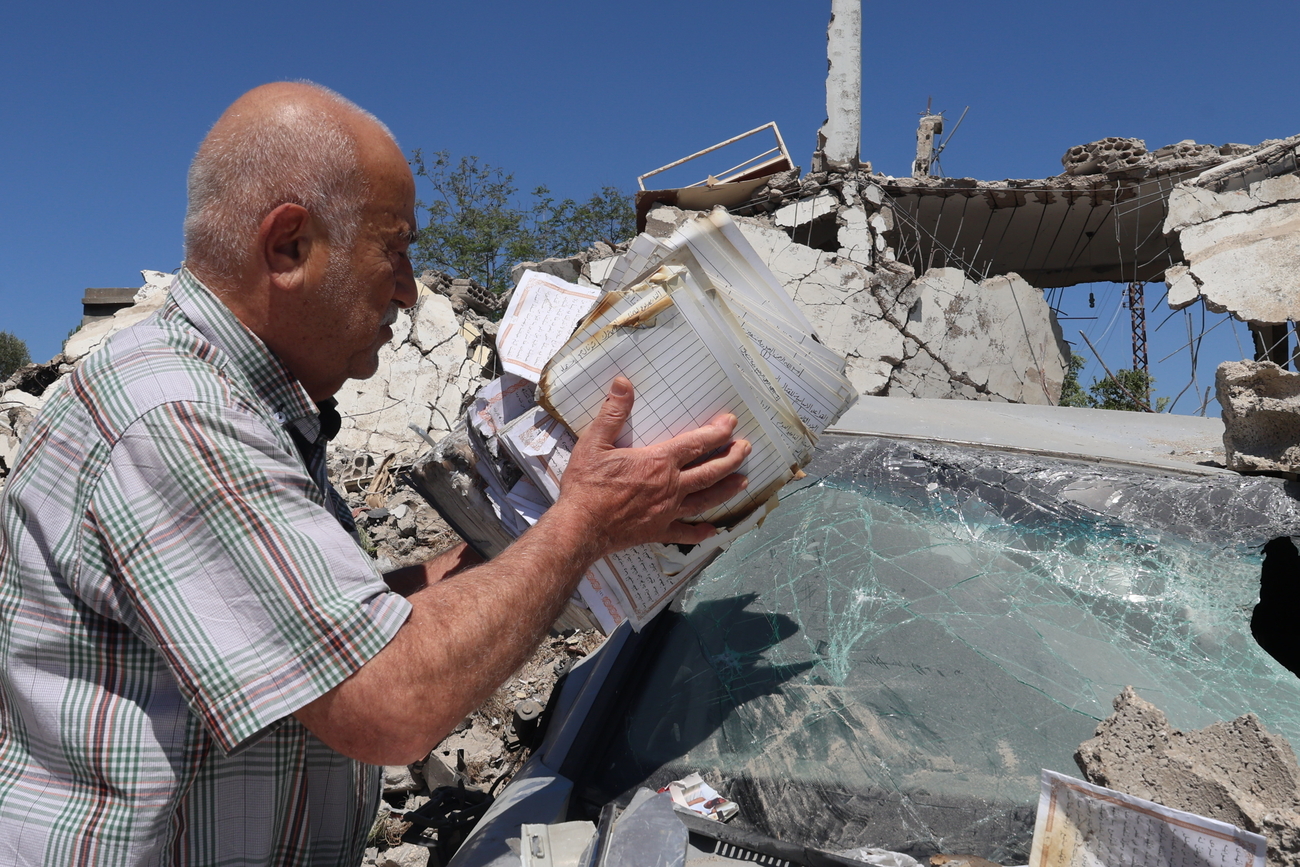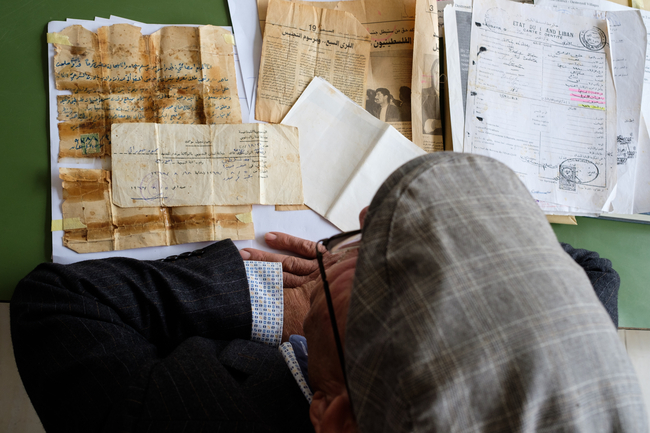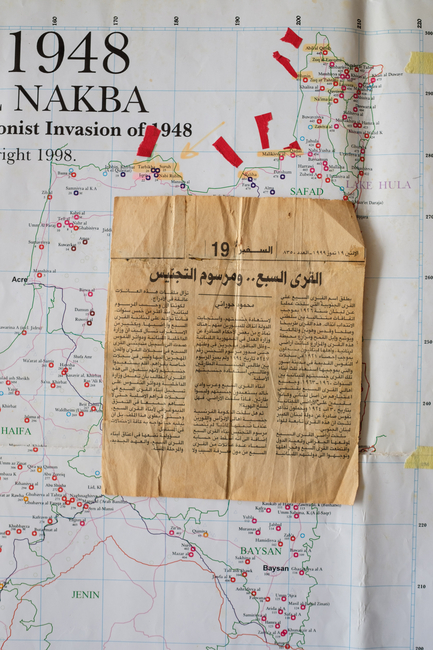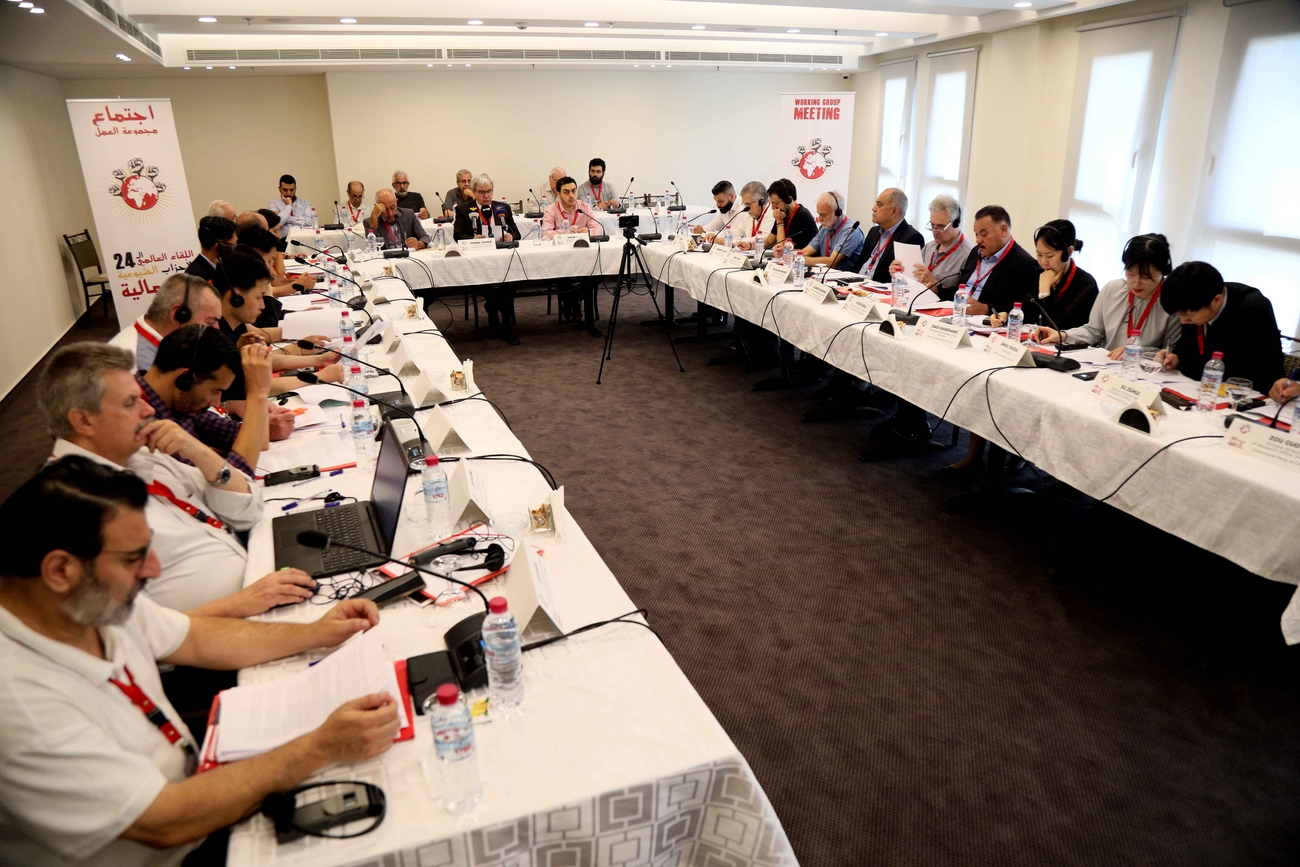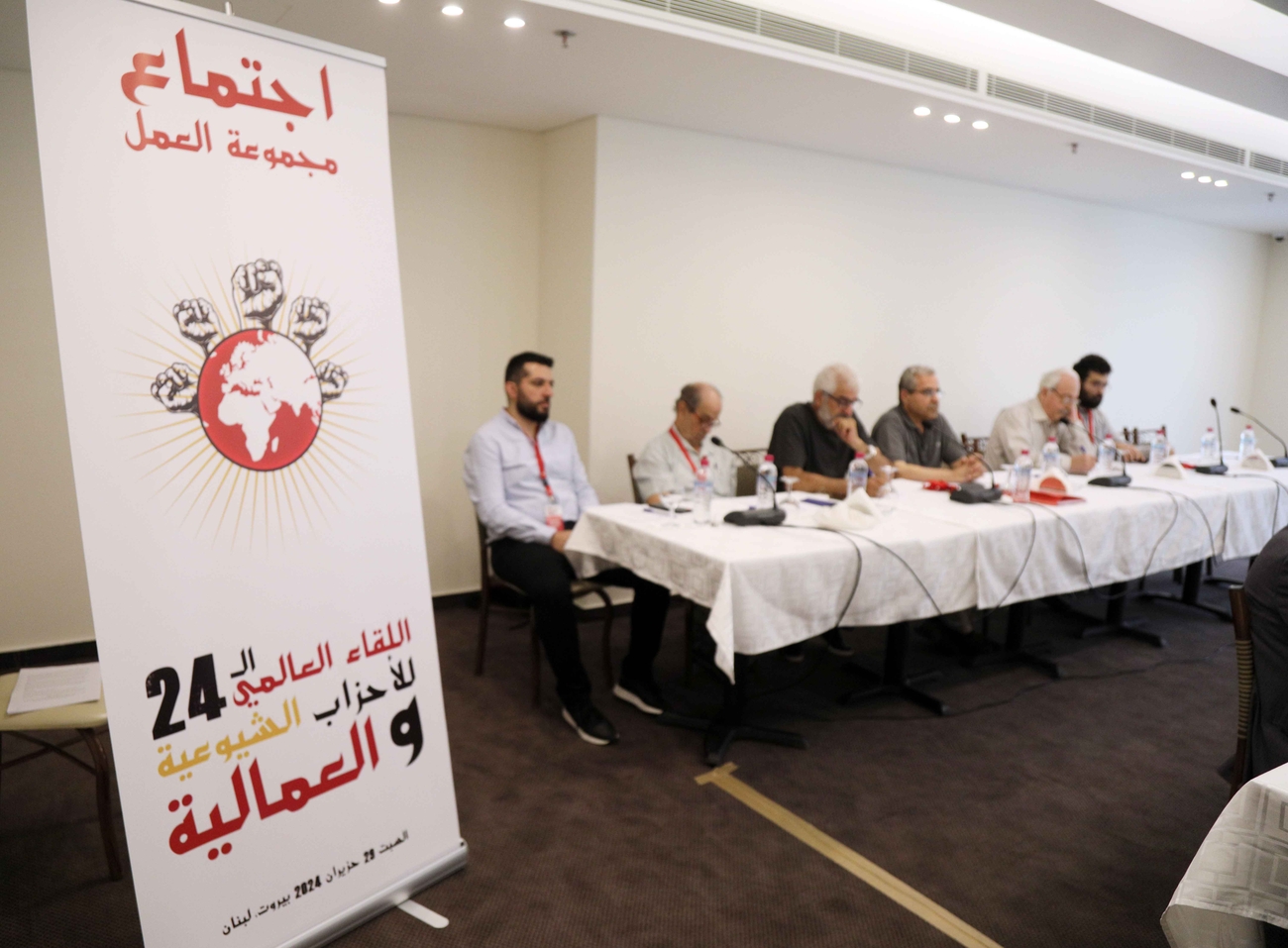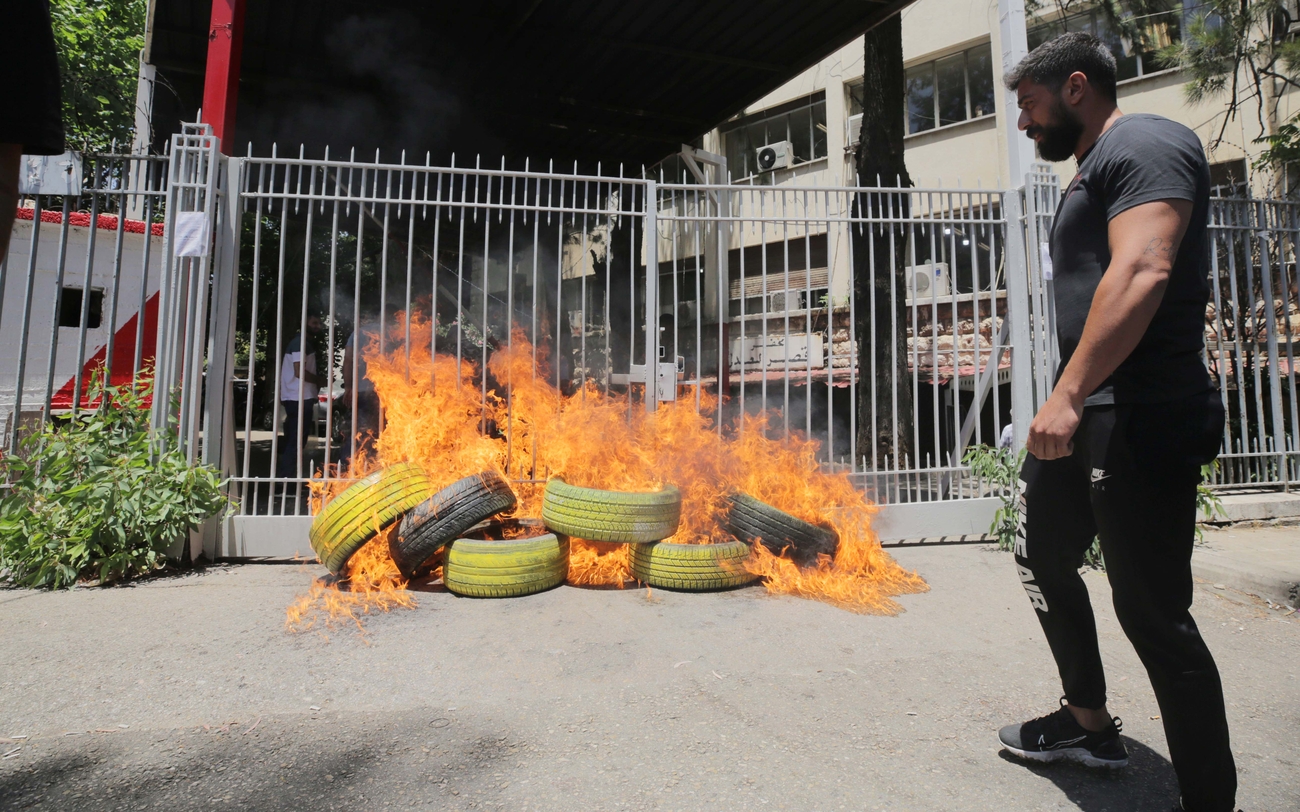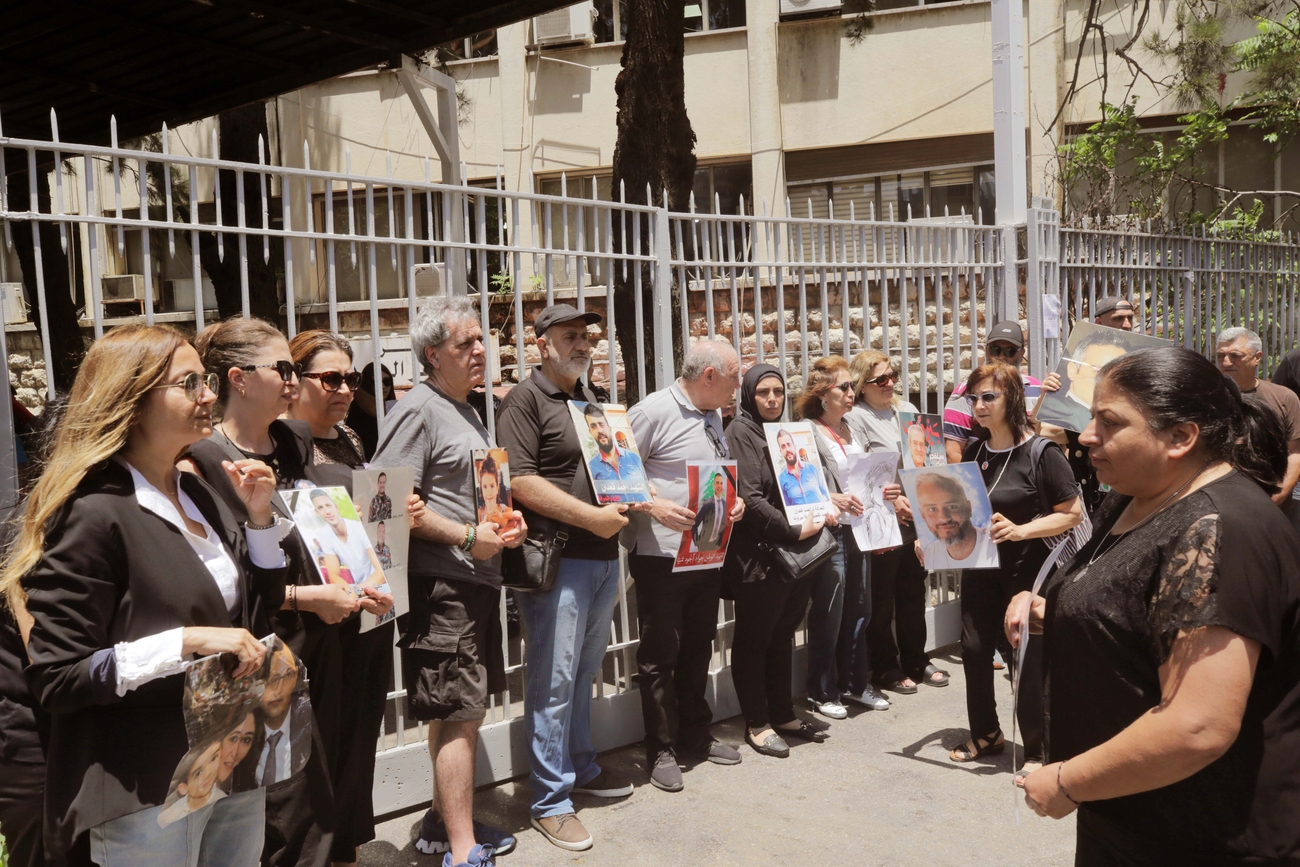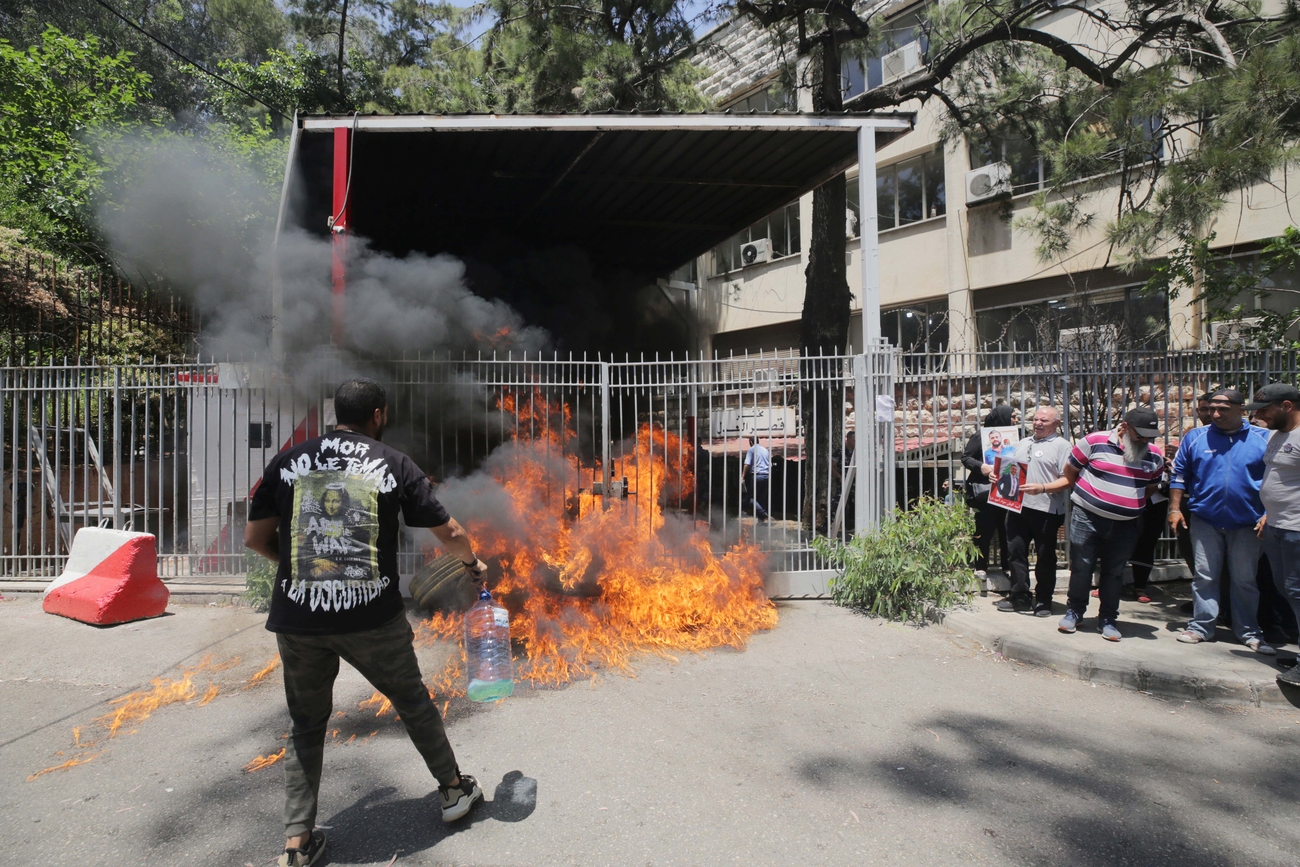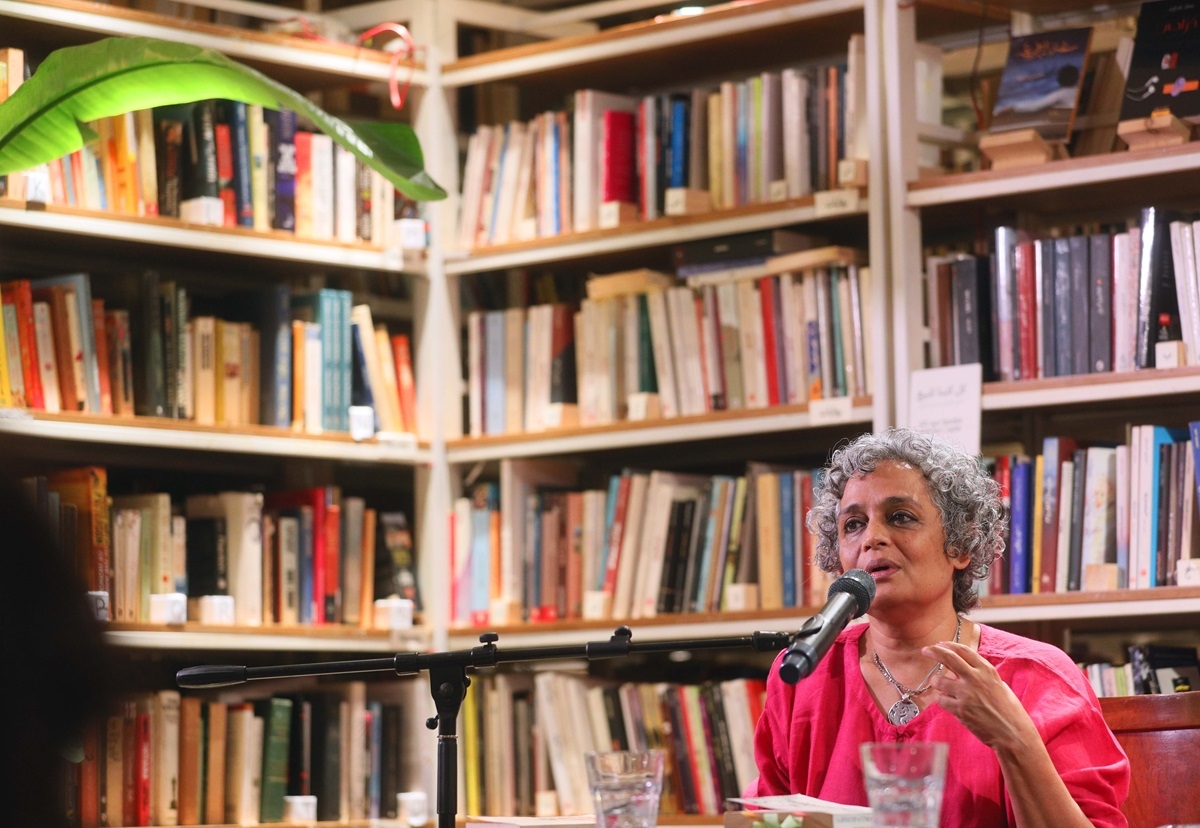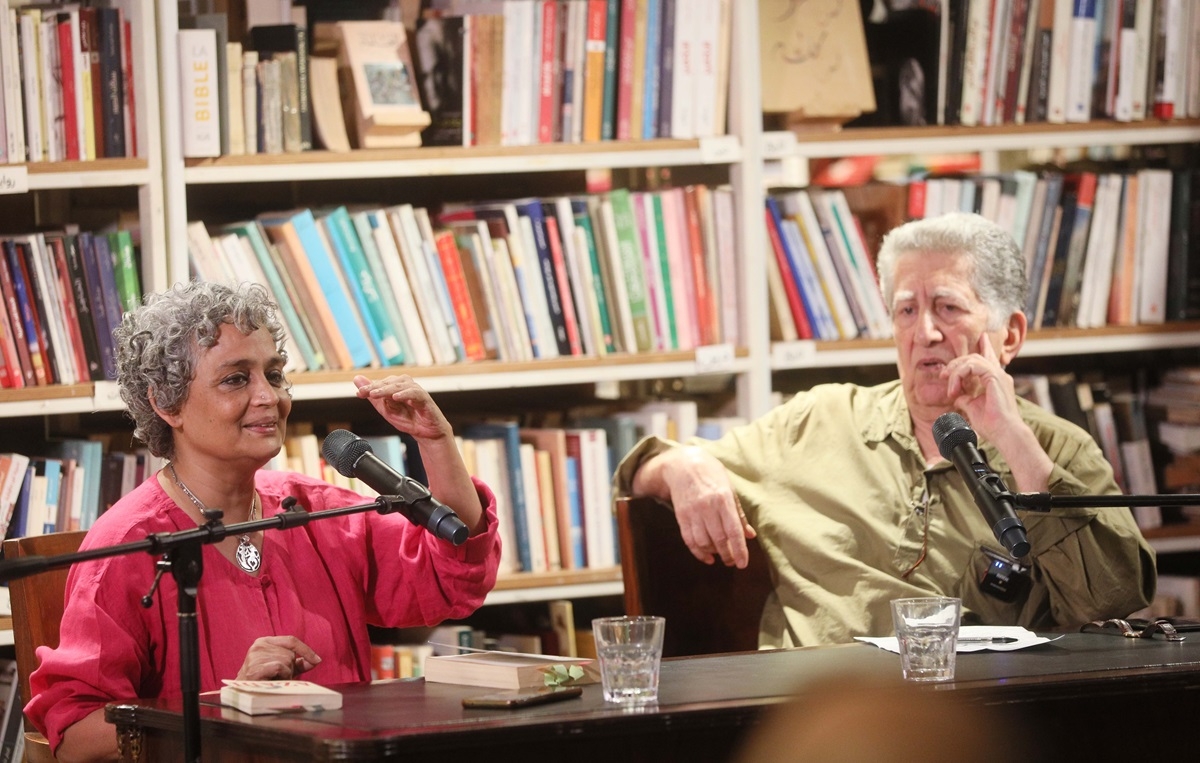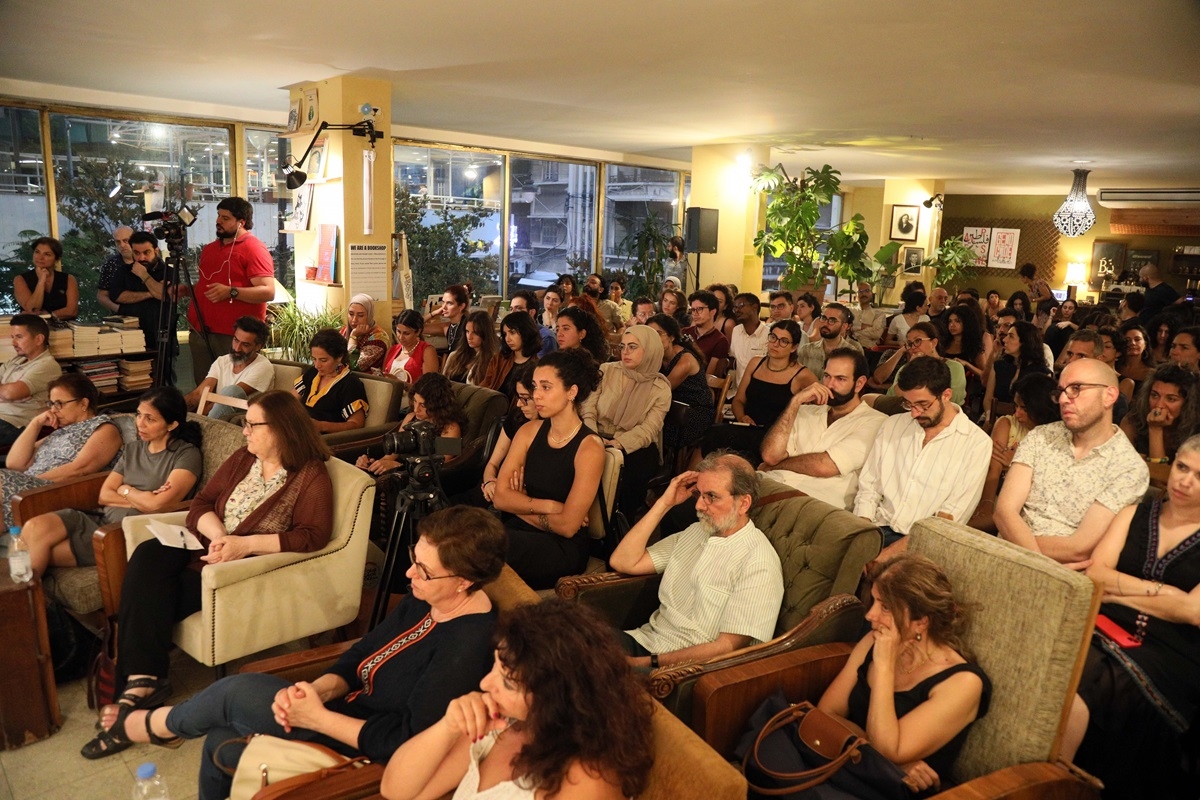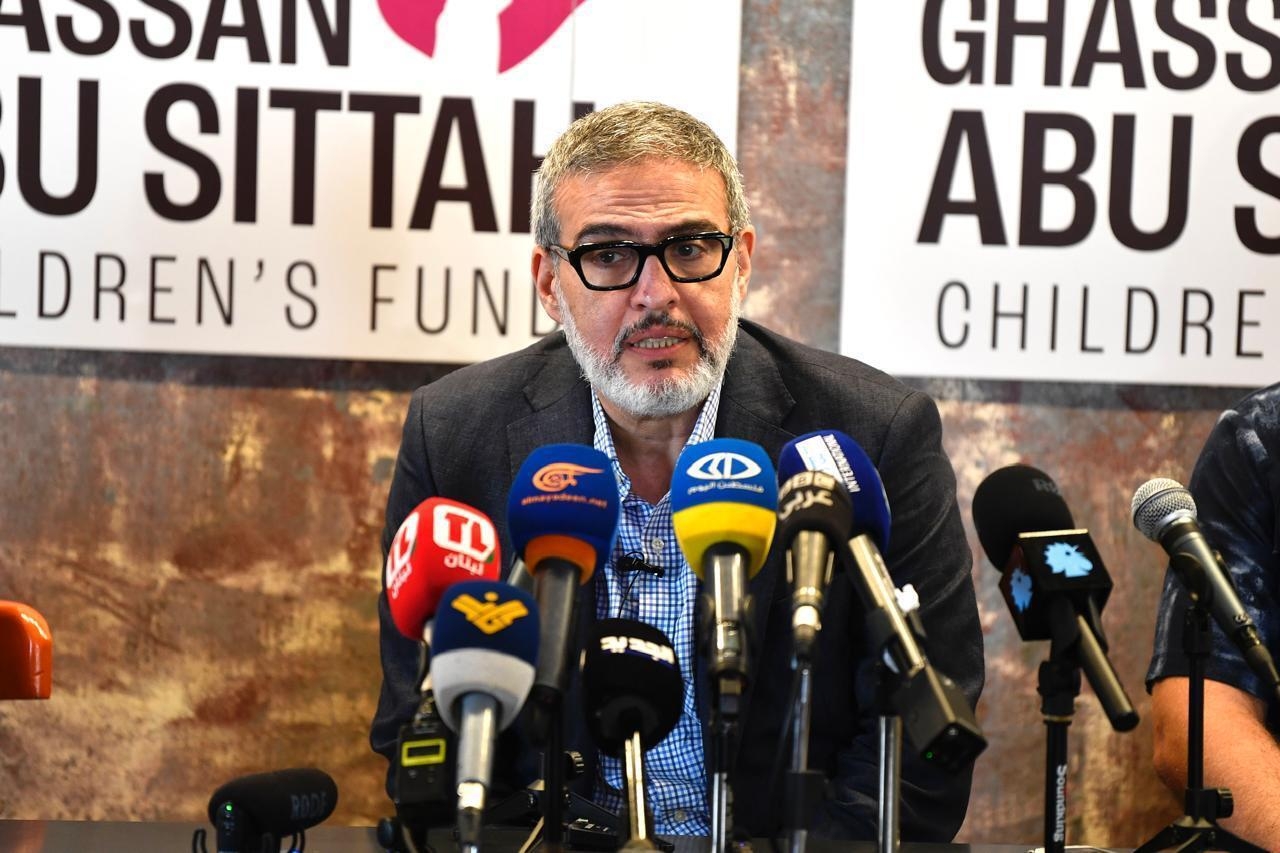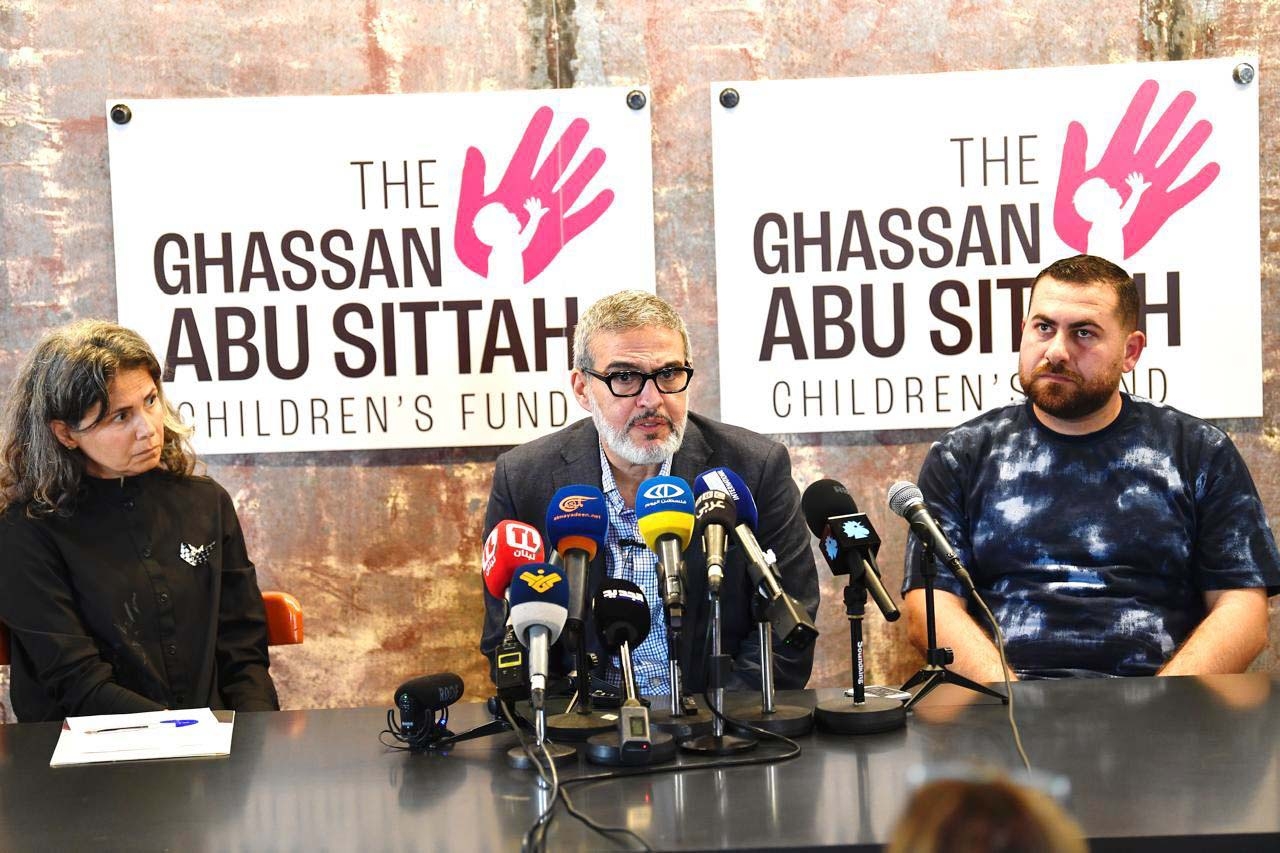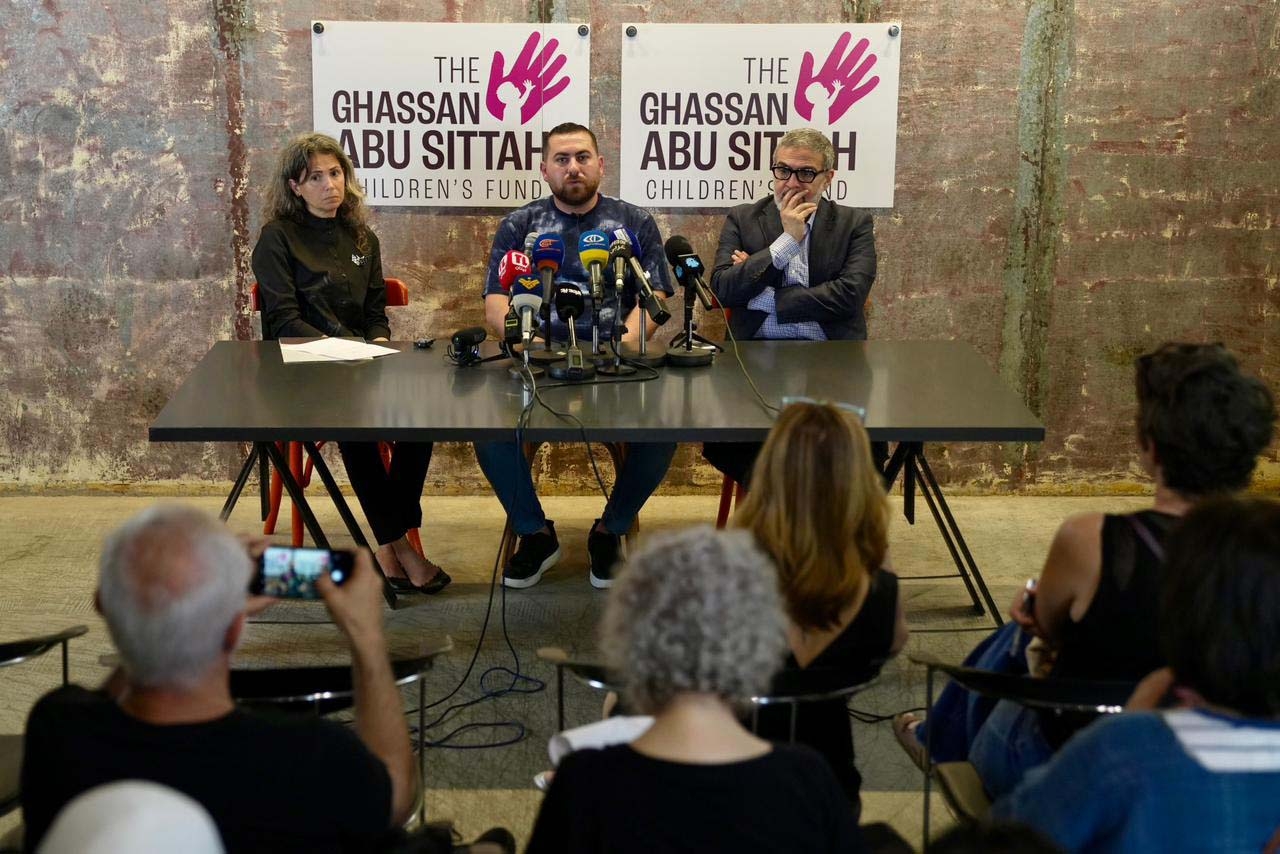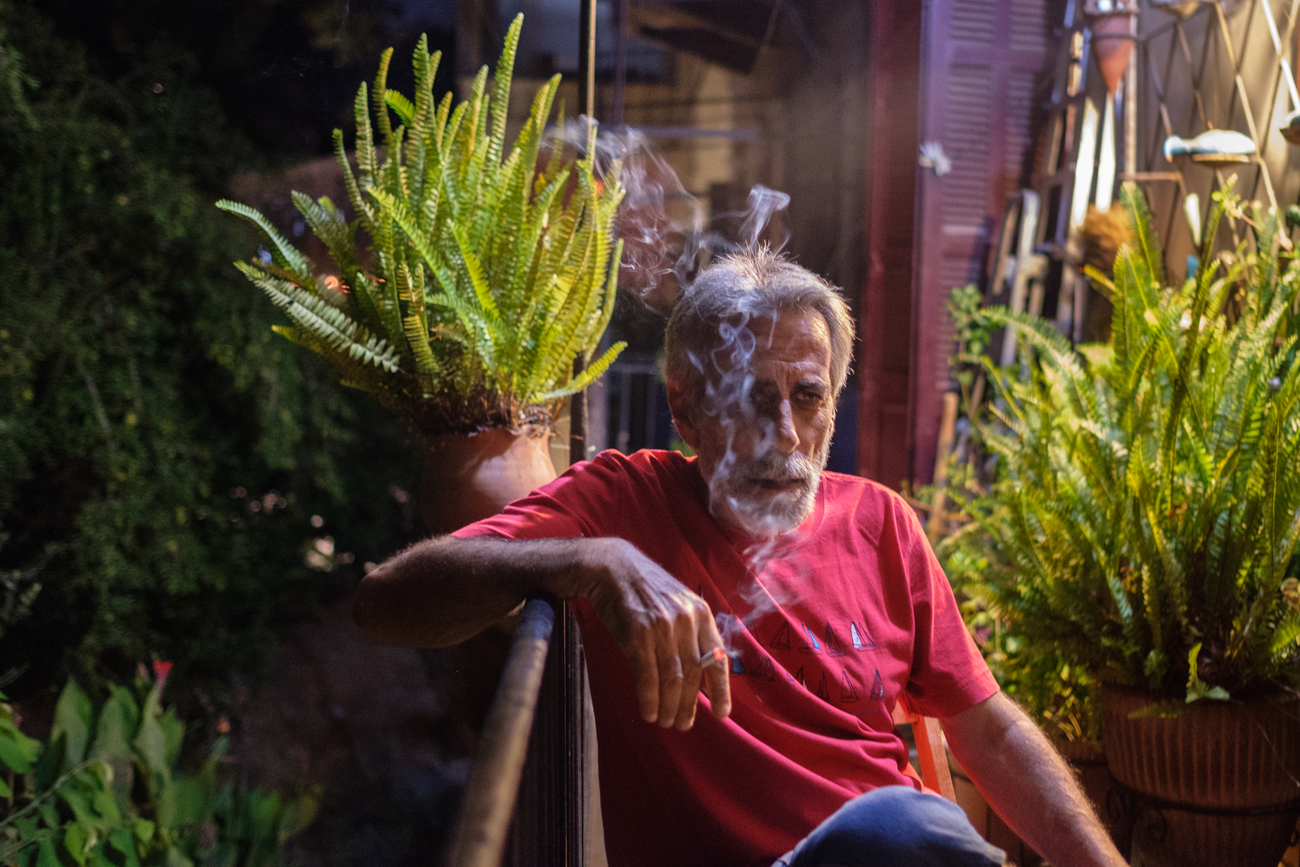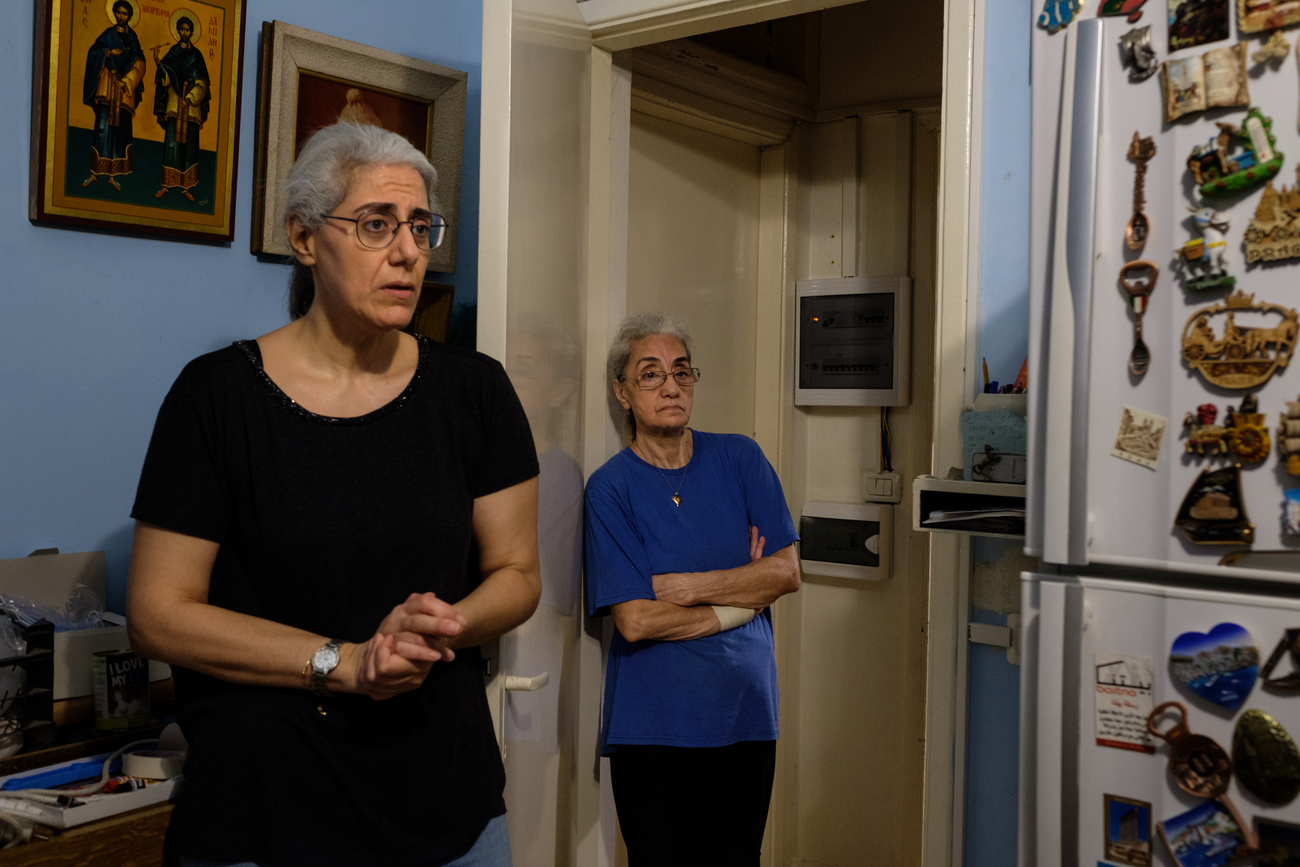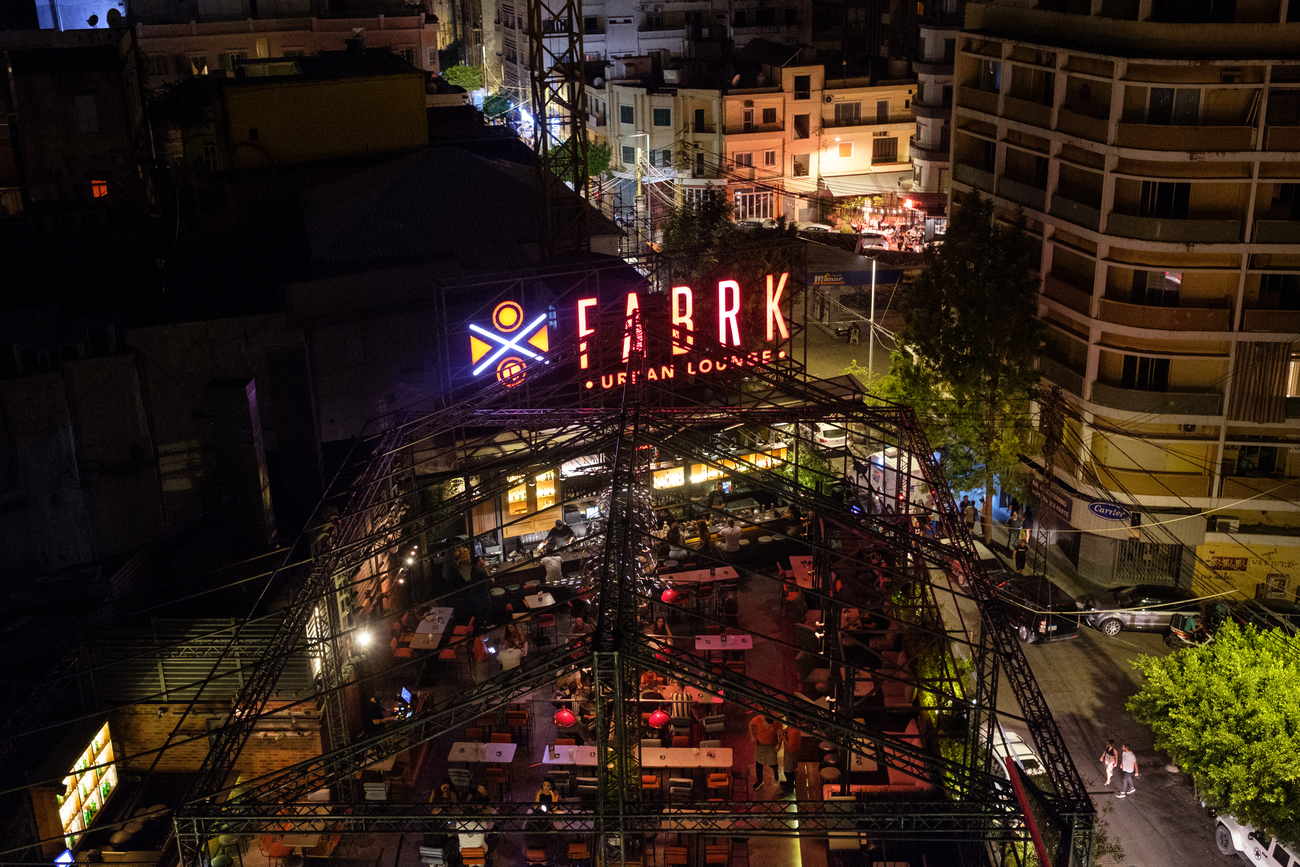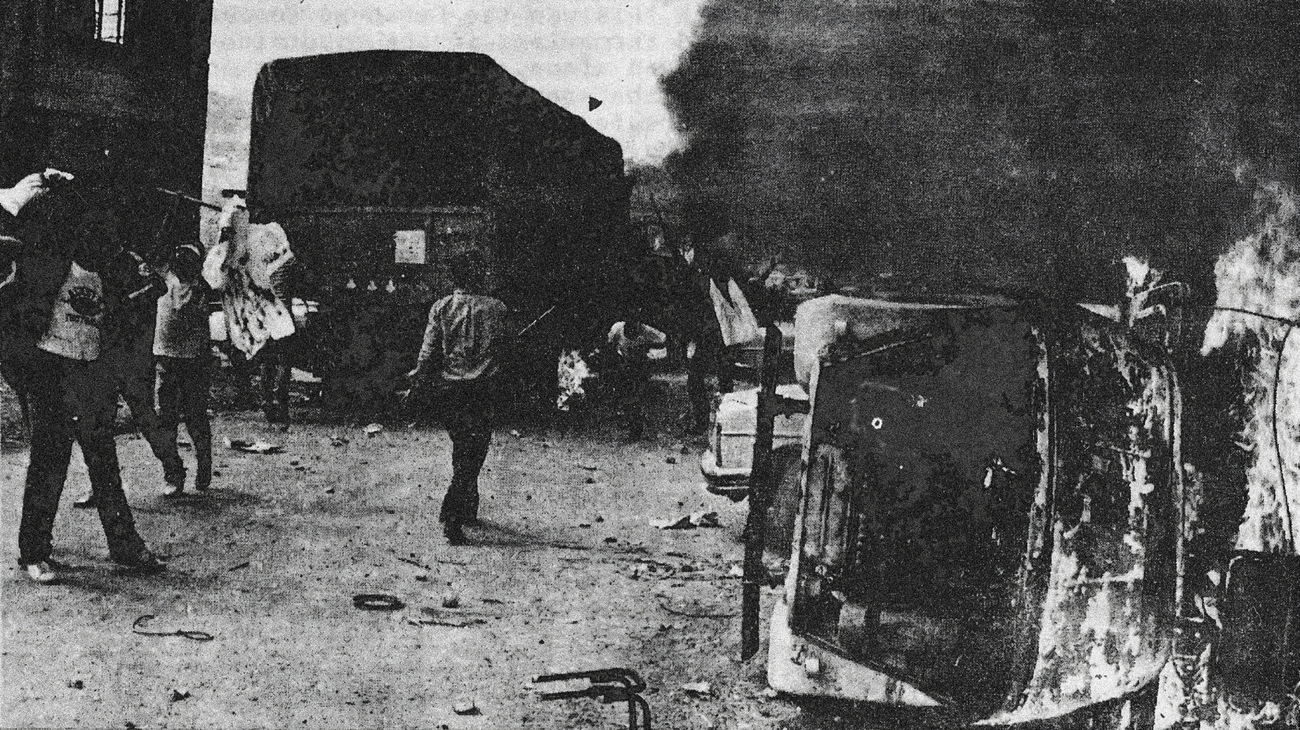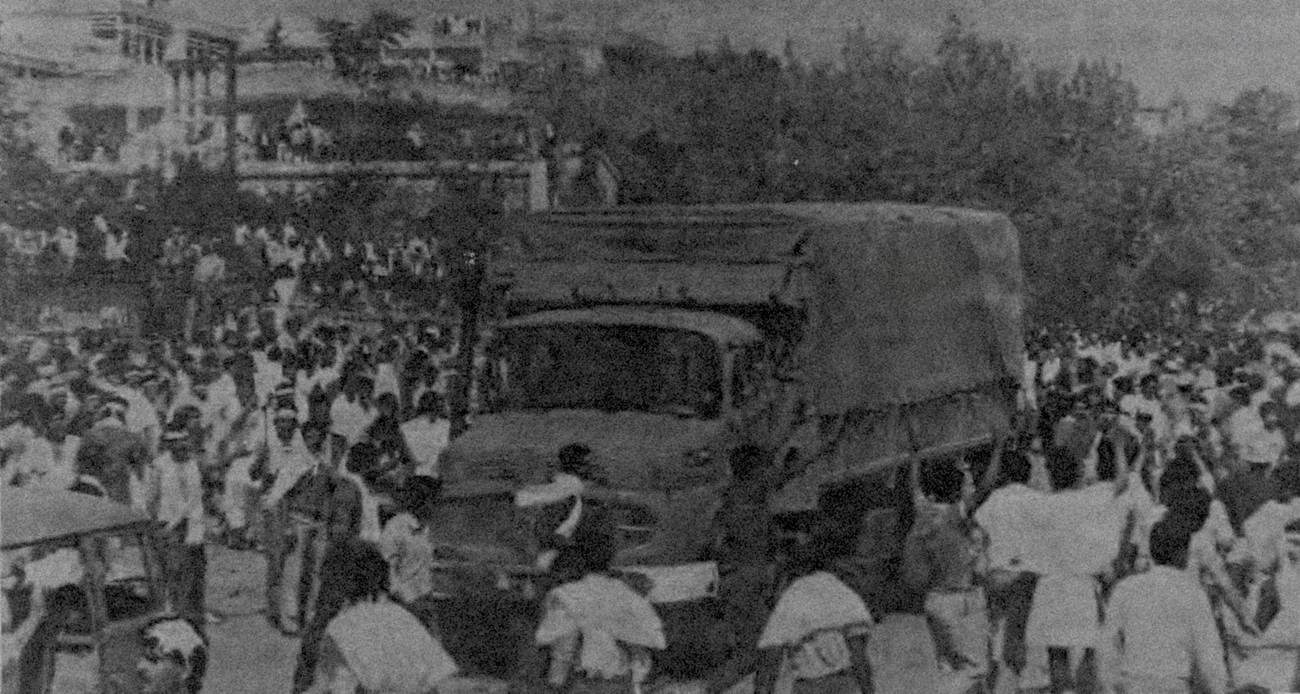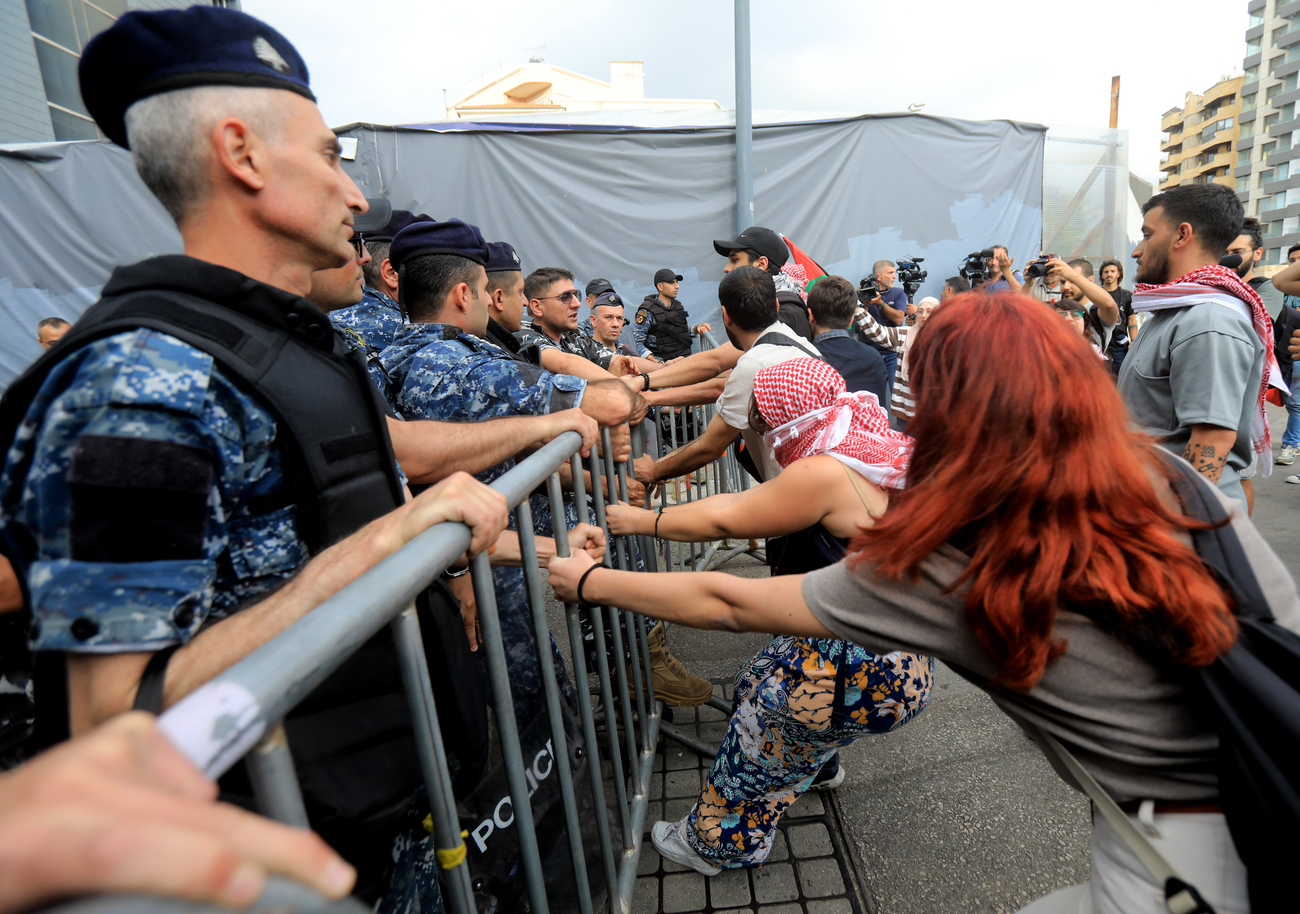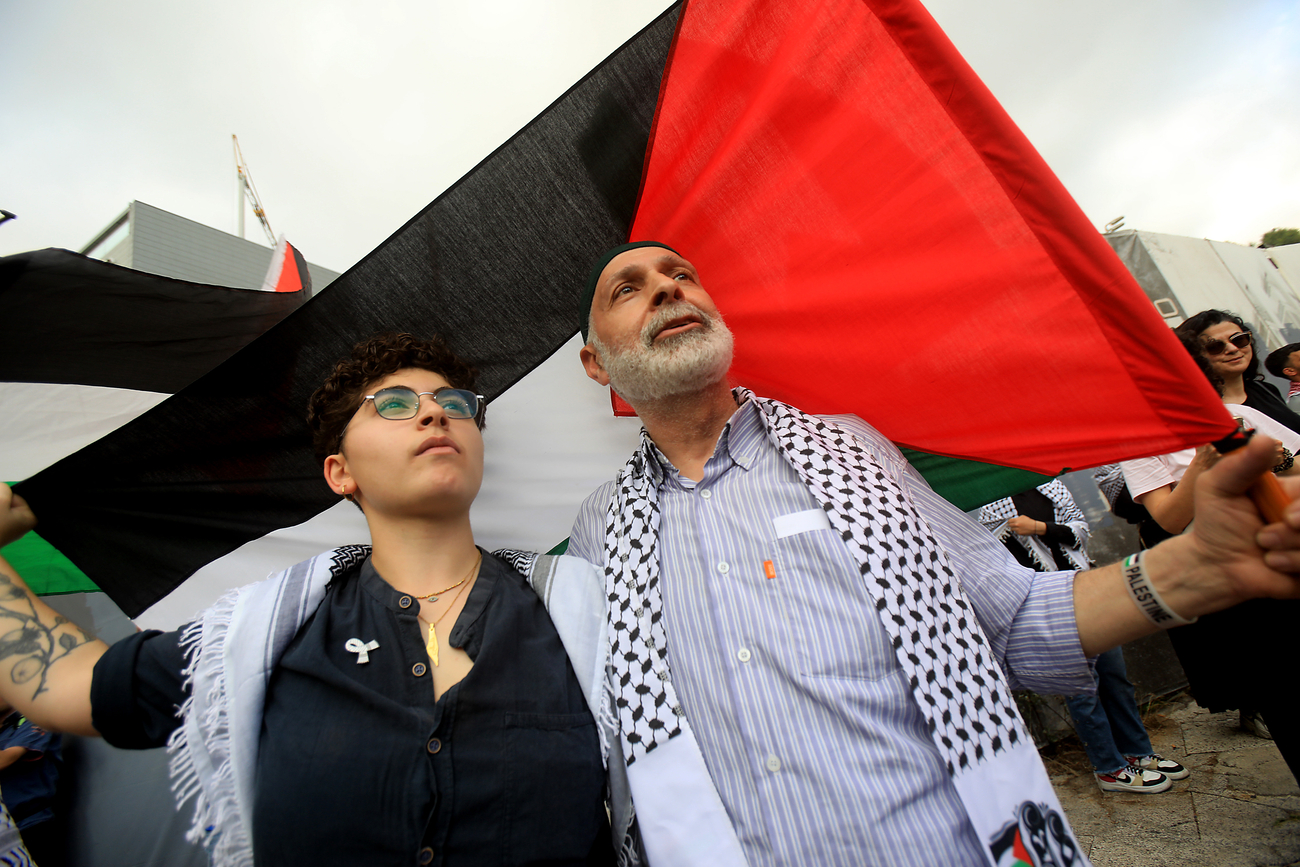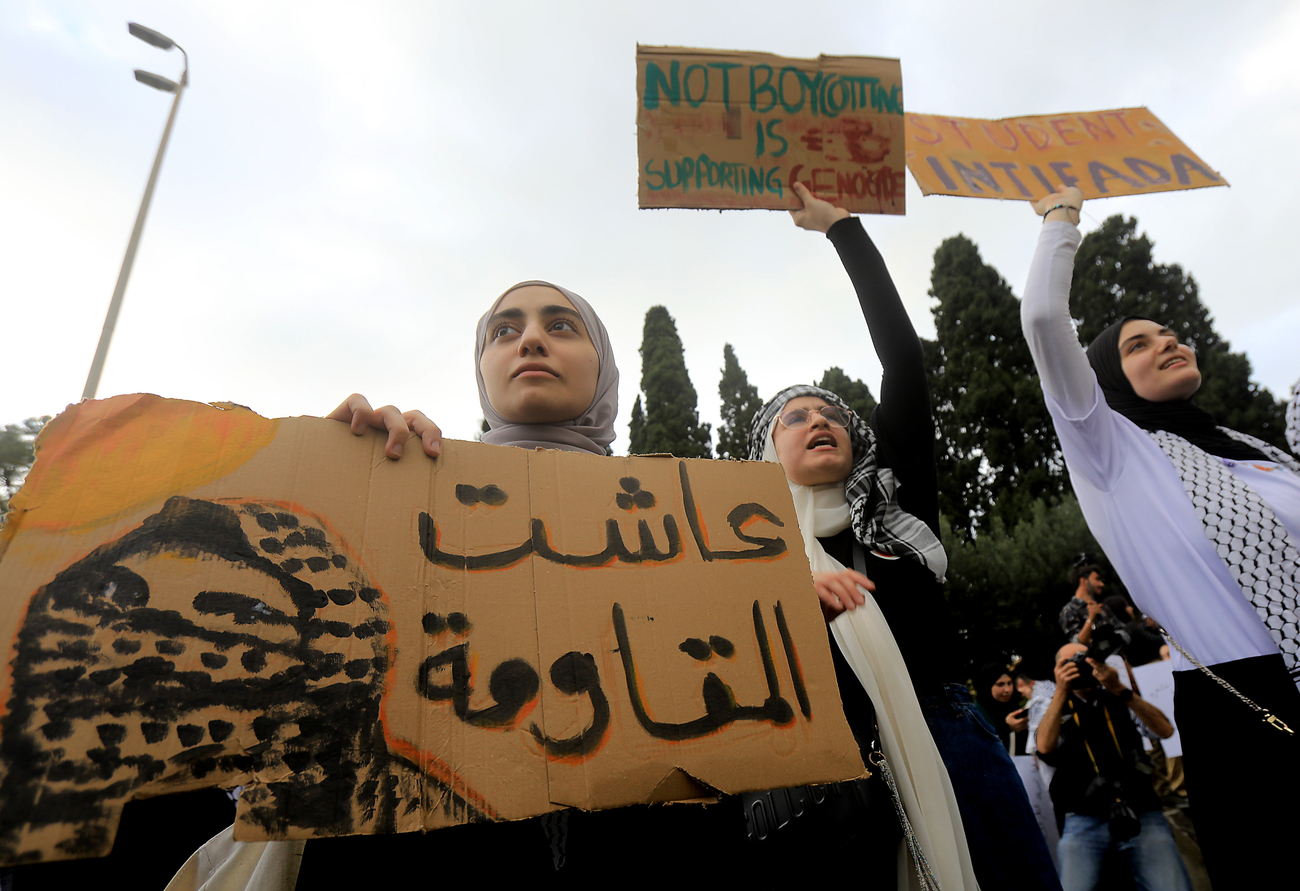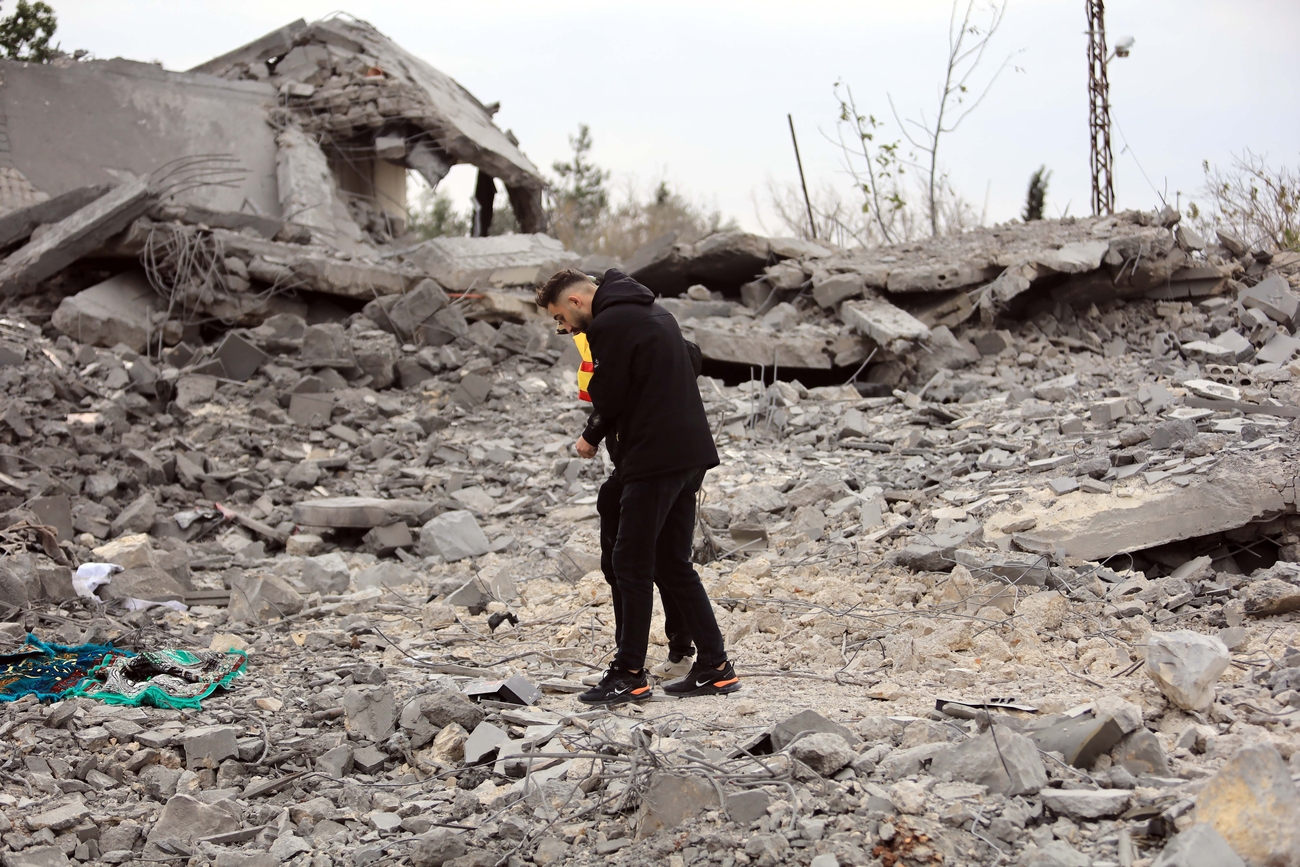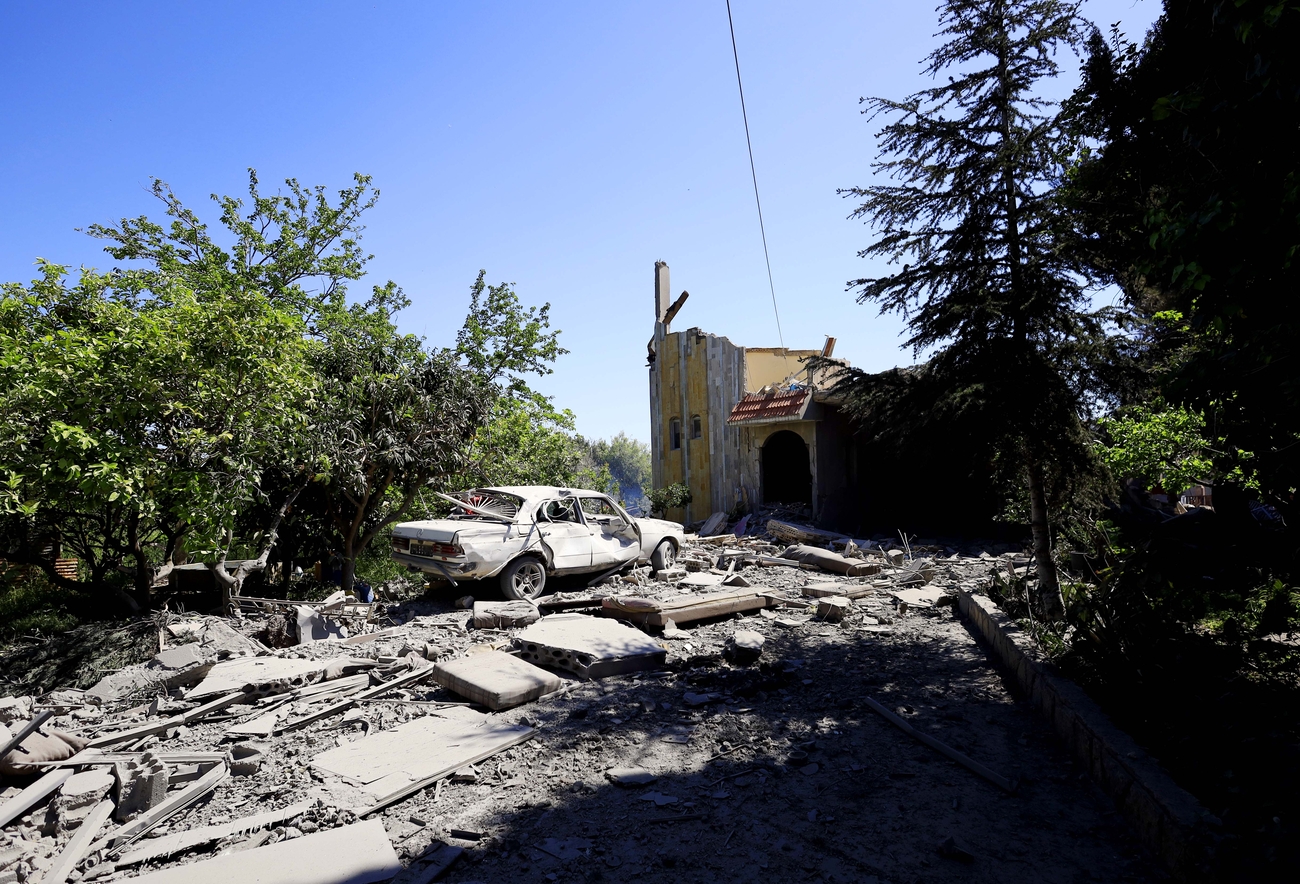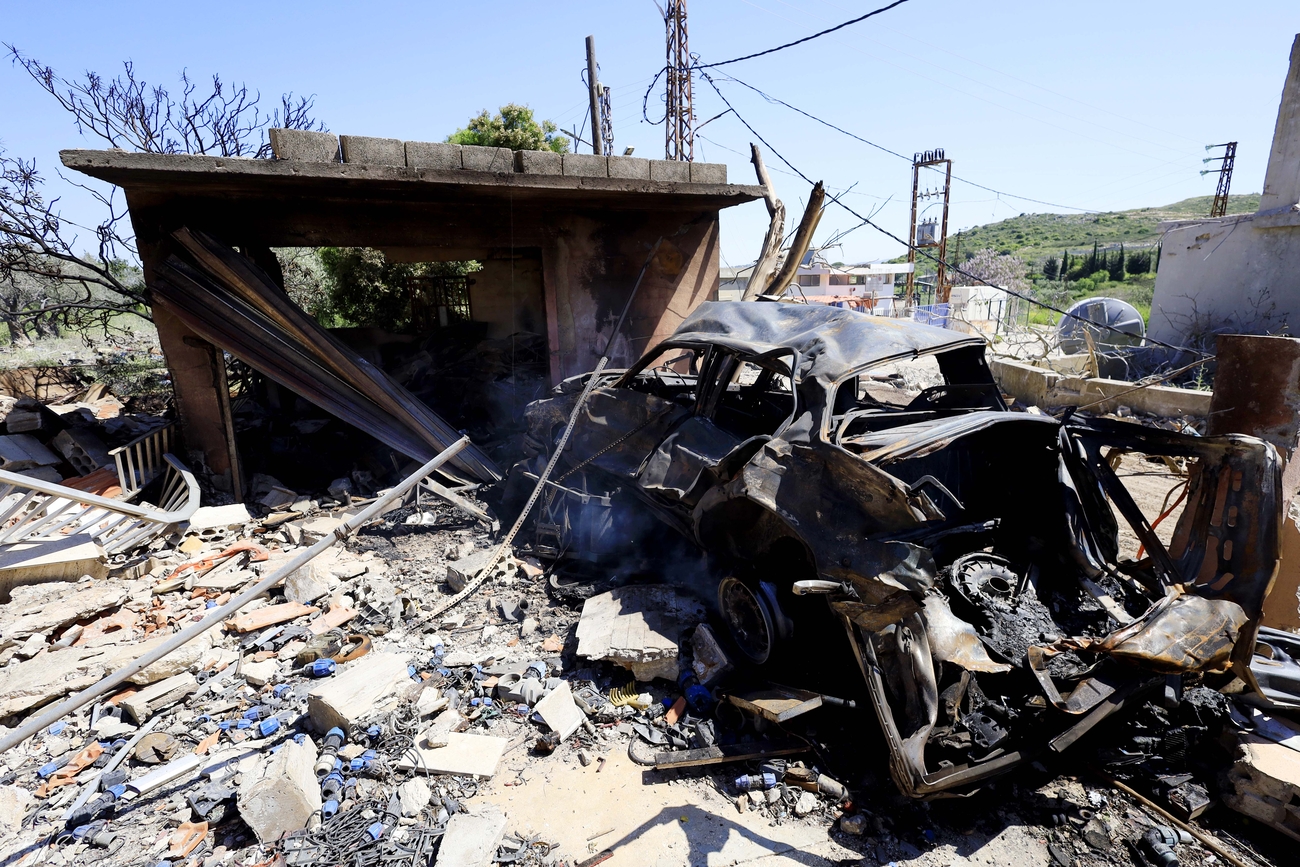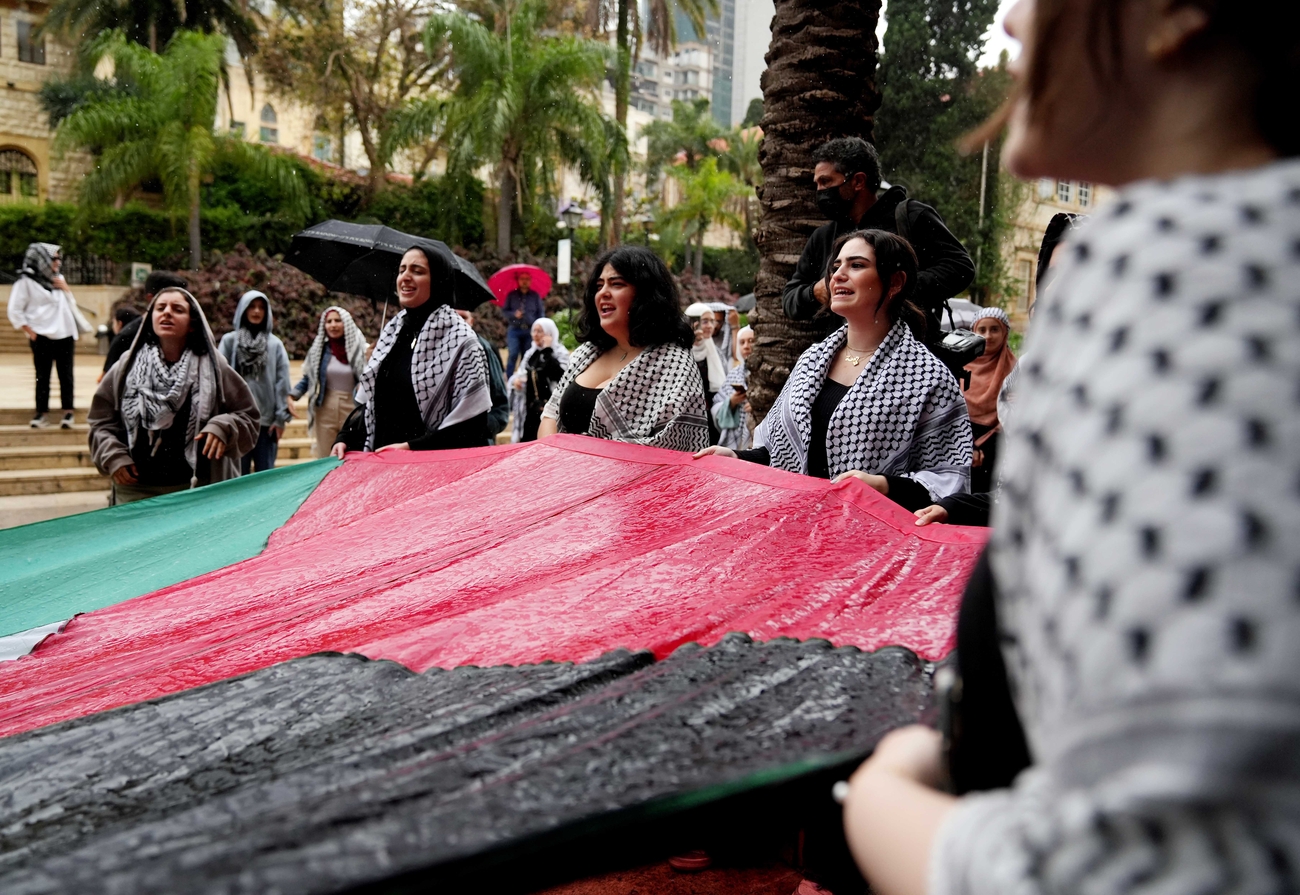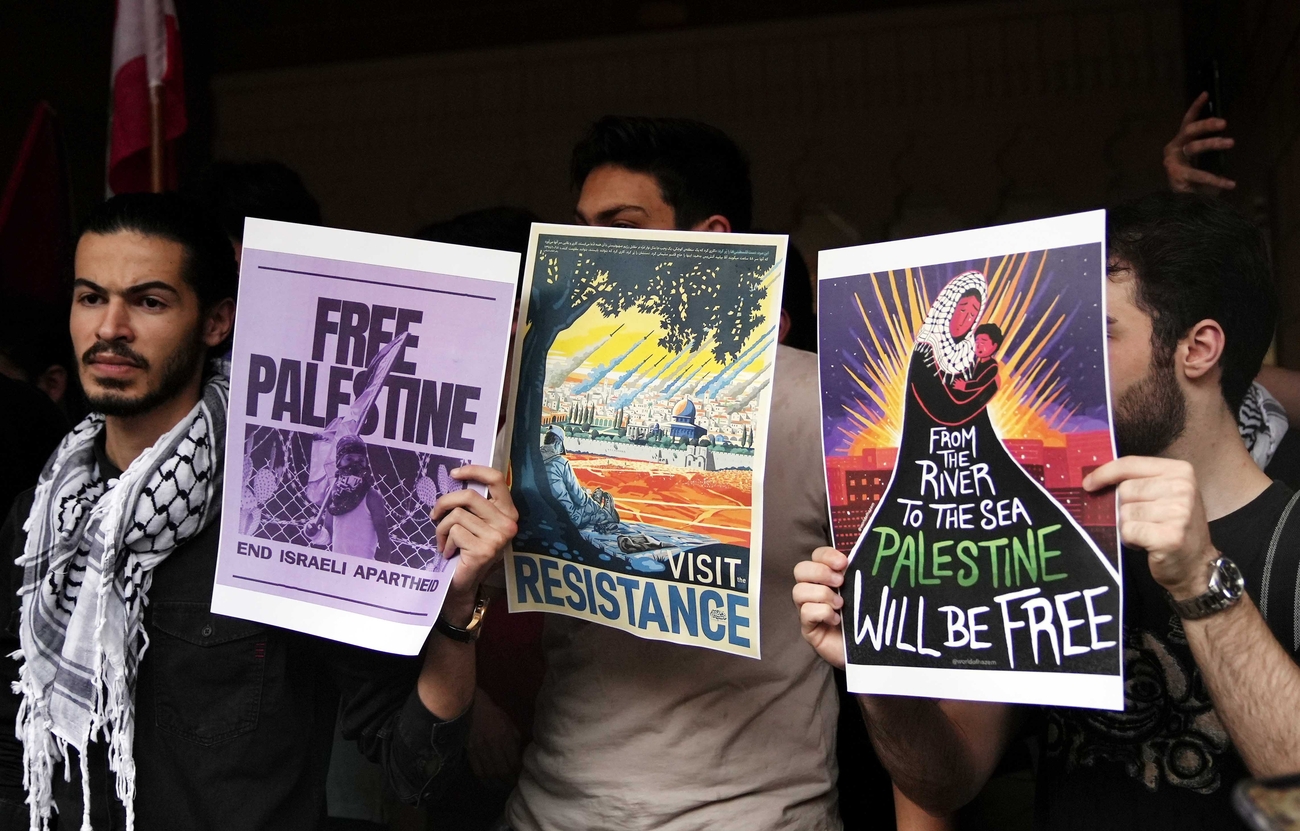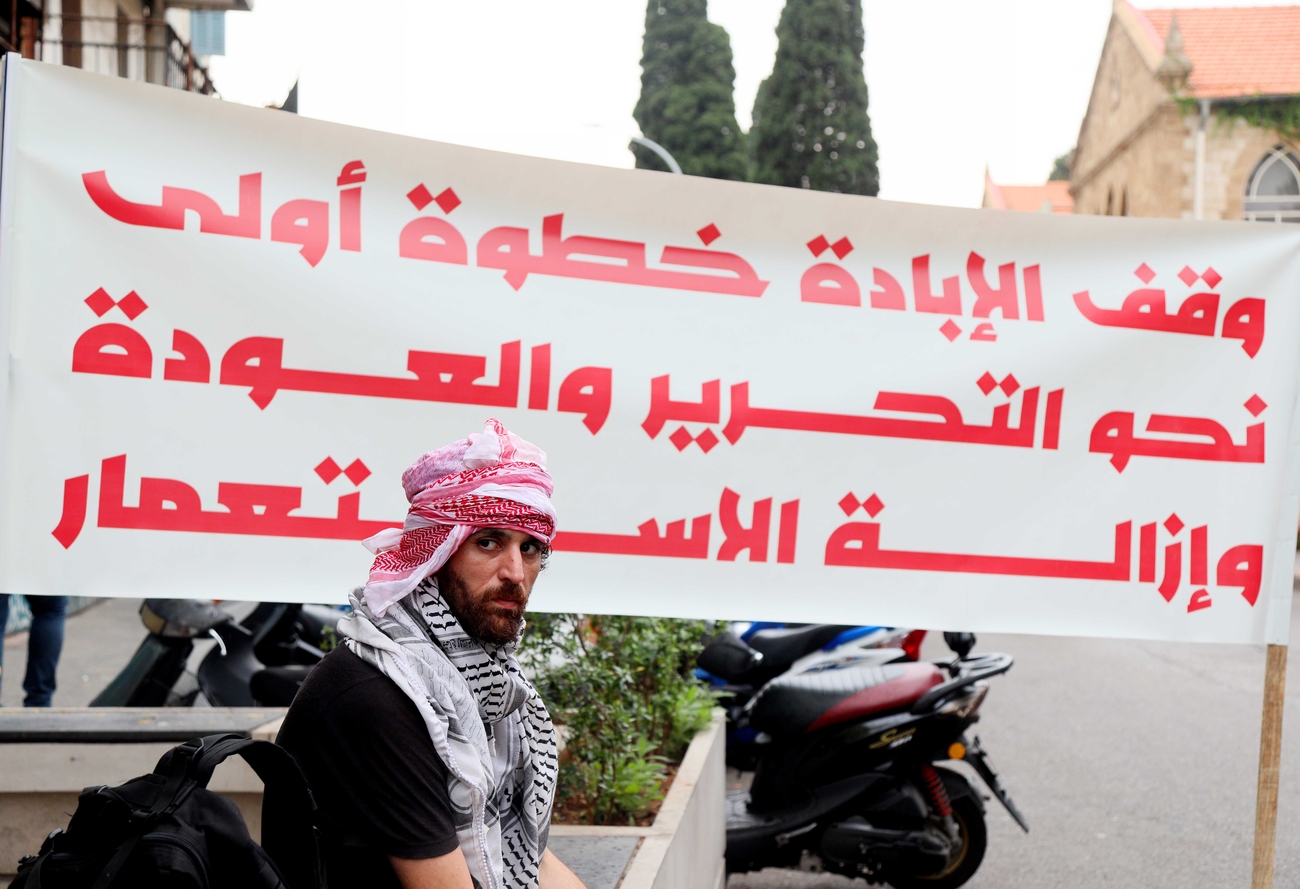The News Stand
September 13, 2024 Human Smuggling: Risking It All To Leave Lebanon Burj al-Barajneh

Doctors Without Borders (MSF) conducts an operation to rescue migrants in distress off the cost of Libya on January 25, 2023. (Mohamad Cheblak/MSF)
Eight Palestinian refugees from Burj al-Barajneh camp in Beirut’s southern suburbs returned home Thursday afternoon after they were kidnapped on Monday night, a friend of one of the victims told The Public Source.
The kidnappers, posing as migrant smugglers, promised to take a group of Burj al-Barajneh residents from Tripoli to Italy by boat, for an amount of $7,500 per person, paid on arrival, the friend said. After reaching the Bekaa, however, the group lost contact with their loved ones and were taken hostage. The mother of Ghazi al-Shafei, one of the captives, said that they lost contact as soon as the group arrived at the Kuwaiti embassy area.
The kidnappers demanded large ransoms from the families of the hostages, and sent the father of one captive, Yusr Daghim, videos that appear to show his son being tortured, footage that The Public Source has reviewed.
After being released, Daghim confirmed he was tortured. “I thought I was going to die,” he said. “I didn’t want to die like this.”
On Tuesday, residents of Burj al-Barajneh demonstrated and blocked roads near the camp, demanding that security forces intervene to free the hostages. “We want our children. They traveled after selling their homes, fleeing poverty and unemployment,” one demonstrator told the website Palestinian Refugees Portal. “We demand that the Lebanese state take action.”
The next day, action came. The Lebanese army said it had conducted raids in the Hermel region, freeing the hostages and arresting one of the kidnappers. “Efforts are ongoing to arrest the remaining members of the gang,” the army said in its statement. The army did not respond to a request for additional information.
Attempts to leave Lebanon by dangerous sea journeys appear to be increasing. In the first three months of the year, 35 boats attempted to reach Cyprus, according to the latest available data from the UN refugee agency, UNHCR. In all of 2023, by comparison, at least 65 boats departed or attempted to depart, carrying nearly 4,000 passengers. About half of the boats that left last year reached Europe, where tens of thousands of people await decisions on their legal status in Cyprus. The Lebanese army has been trying to prevent these departures, arresting both smugglers and migrants, including 150 Syrian migrants arrested off the coast of Arida, north Lebanon, last month.
Learn more about Lebanese army interceptions of migrant boats, and the grave human toll they have taken, in our deep dive into the deadly interception of April 23, 2022.
September 6, 2024 Inside Roumieh Roumieh Prison, Metn
Tense calm has returned to Roumieh Prison, Lebanon’s largest, after the death in custody of Omar Hameyed, who suffered a heart attack last weekend. Imprisoned people claim the prison doctor was late in responding to Hameyed’s medical emergency and delayed transferring him to the hospital, leading to his death. Security sources have denied the allegation. Unnamed security sources told local media that following Hameyed’s death, prisoners in Block B briefly took five members of the security forces hostage before releasing them following negotiations and the intervention of the Internal Security Forces’ riot unit.
A person incarcerated in Block B — who also serves as a de facto representative of other inmates in the Block — strongly denied to The Public Source that anyone was held hostage. We are withholding his name to avoid repercussions from prison authorities. “There was a sit-in in the prison yard, and some prisoners expressed their objection [to Hameyed’s death] by banging on the doors for a short time,” he said. A representative from the Lebanese Observatory for the Rights of Prisoners (LORP) corroborated this account to The Public Source, citing incarcerated sources inside Roumieh. The representative suggested that security forces were attempting to shift the media narrative away from accusations of medical negligence. In a statement, the Association of Muslim Scholars in Lebanon said seven prisoners have died due to medical negligence in Block B in recent years.
MP Michel Moussa (Amal/Zahrani), head of the national Human Rights Committee, has called for a “transparent investigation” into Hameyed’s death and urged the government to address Lebanon’s poor prison conditions—including severe overcrowding. Roumieh, which has a capacity of 1,050 prisoners, currently holds 3,619 people, according to the Beirut Bar Association. The majority of people incarcerated in Lebanese prisons have not been sentenced.
Block B prisoners are demanding that caretaker Prime Minister Najib Mikati and Parliament Speaker Nabih Berri prioritize improving prison conditions, particularly access to medical care, and reducing the length of sentences.
“The prisoners won’t be silent about their peer’s rights, and won’t be silent so they meet the same fate,” the LORP representative said. “We are still heading towards a peaceful movement,” added the Block B representative, “A strike is the most likely option on the table.”
Photo credits: Roumieh Prison, Metn, 2013. (Marwan Bou Haidar/The Public Source)
August 30, 2024 Tree of the Missing Gebran Khalil Gebran Garden
The Committee of the Families of the Kidnapped and Disappeared in Lebanon commemorates the tens of thousands of people who were forcibly disappeared during the Lebanese Civil War on International Day of the Disappeared on Friday.
The Committee represents the families of the estimated 17,000 people who were forcibly disappeared during the Civil War (1975–1990). Throughout August, the Committee and the International Committee of the Red Cross have planted olive trees around Lebanon to remember those who have been missing for decades.
A youth activist with the committee, during a tree planting in Akkar on August 16, said they planted the tree in the hope that "the tree of the disappeared can be a necessary step to achieve more solidarity and support for the families of the disappeared"
At the Beirut tree planting on Thursday, committee president Wadad Halawani — whose husband Adnan Musbah Halawani was forcibly disappeared in September 1982 — said “When the officials announced peace, they said 'we will not be able to help you because it was wartime and everyone killed and kidnapped.' They advised us to forget the missing and look to the future, but we did not follow their advice and considered [the realization] of true peace would be when our loved ones return and we know their fate.”
Addressing the government's inaction, and lack of follow-through on the Missing and Forcibly Disappeared Persons Law (105/2018), she asked "Why is it forbidden to investigate? Why is accountability forbidden? Why is the judiciary paralyzed? Demanding justice is outlawed in our country and justice is absent."
August 30, 2024. Gebran Khalil Gebran Garden, Beirut, Lebanon. (Marwan Bou Haidar/The Public Source)
August 23, 2024 Georges Corm (1940–2024) Beirut

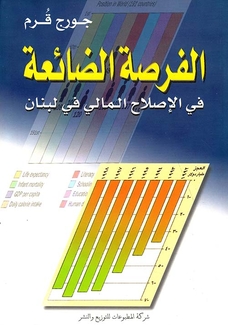

[Photos of the Week] Georges Corm (1940–2024), public intellectual, economist, historian, writer, and former Finance Minister died at the age of 84 after a long illness. He leaves behind an enormous body of work spanning economics, public policy, history, religion, and fiction.
As an economist, he was a staunch critic of what he called the “Dubai Model”—a vision of Lebanon as a shopping and services destination that he traced back to the work of banker and politician Michel Chiha—advocating instead for a productive economy that relies, at least partly, on industry and agriculture. He viewed former Prime Minister Rafic Hariri’s postwar reconstruction policies as being wrongly guided by the Dubai model, warning, as Finance Minister (1998-2000), that the lax attitude to the growing debt would be “financial suicide” (he said the deputy Prime Minister had the phrase struck from cabinet minutes). In his 2001 book “The Missed Opportunity,” he presciently warned against the concentration of power in the banking sector and maintaining high interest rates on US dollars in Lebanese banks — a practice that would gain notoriety more than a decade later in a bid to attract deposits under the name“financial engineering” and contribute to Lebanon’s financial meltdown in 2019. A former civil servant of the 1960s, Corm admired the Chehabist vision of a proactive, development-focused state in Lebanon. He didn’t live to see that vision materialize.
As a historian and thinker, Corm waged war on what he saw as damaging cliches and superstitions—Western self-congratulation over its putative values, the unbridgeable divide between the peoples of Europe and the Middle East, and the apologetics of sectarian militias, among other bogeymen. A secular humanist academic, he found a home in the hearts of thousands of his students, and a deaf ear in the halls of power.
(Portrait courtesy of georgescorm.com)
August 16, 2024 The War in Jabal Amel Multaqa Assafir
Viewers attend a photography exhibition showcasing photographs from the South in Beirut on Tuesday. The exhibition, featuring pictures of the Israeli aggression taken by photographers Fatima Joumaa and Hassan Fneish, is a "first step toward sharing a fraction of these images, and creating an interactive experience that makes spectators feel close to the scene," Joumaa tells The Public Source, adding that "perhaps the audience will come to consider themselves a part of this confrontation."
"The image itself is an act of resistance," Joumaa says about the role of photographers during wartime. "Documenting this war on the front lines, following funerals and devastation and villagers, has left us with a large archive of raw material."
An upcoming photo essay by Joumaa and Fatima Fouad documents the steadfastness of the villagers of Houla, and centers around the martyr Hassan Ali Qassem Hussein and his funeral in Houla. Stay tuned for its release next month.
August 13, 2024. Beirut, Lebanon. (Marwan Bou Haidar/The Public Source)
August 9, 2024 Psychological Warfare Grand Serail / Haret Hreik
Vapor trails from Israeli warplanes streak the sky over central Beirut in May. Israeli mock raids across Lebanon, alongside actual airstrikes, have been a consistent feature of the war, with deafening sonic bombs spreading anger and fear among residents. This week, Israeli warplanes performed particularly loud sonic bombs over the capital three days in a row, including intense sonic booms timed to coincide with Hezbollah Secretary-General Hassan Nasrallah's speech on Tuesday. In the speech, he said that the delay in responding to Fouad Shukr's July 30 assassination is causing financial and psychological damage to the Zionist state as Israelis anticipate a coming retaliation.
Between October 21, 2023 and June 20, 2024 Israeli warplanes committed 3,367 violations of Lebanese airspace with a total of 11,541 hours of flight time over Lebanon, according to UNIFIL data.
Photos 1–2: May 11, 2024. Beirut, Lebanon.
Photo 3: August 6, 2024. Haret Hreik, Beirut, Lebanon. (Marwan Bou Haidar/The Public Source)
August 7, 2024 Is the Lebanese Government Ready for All-Out War? Lebanon
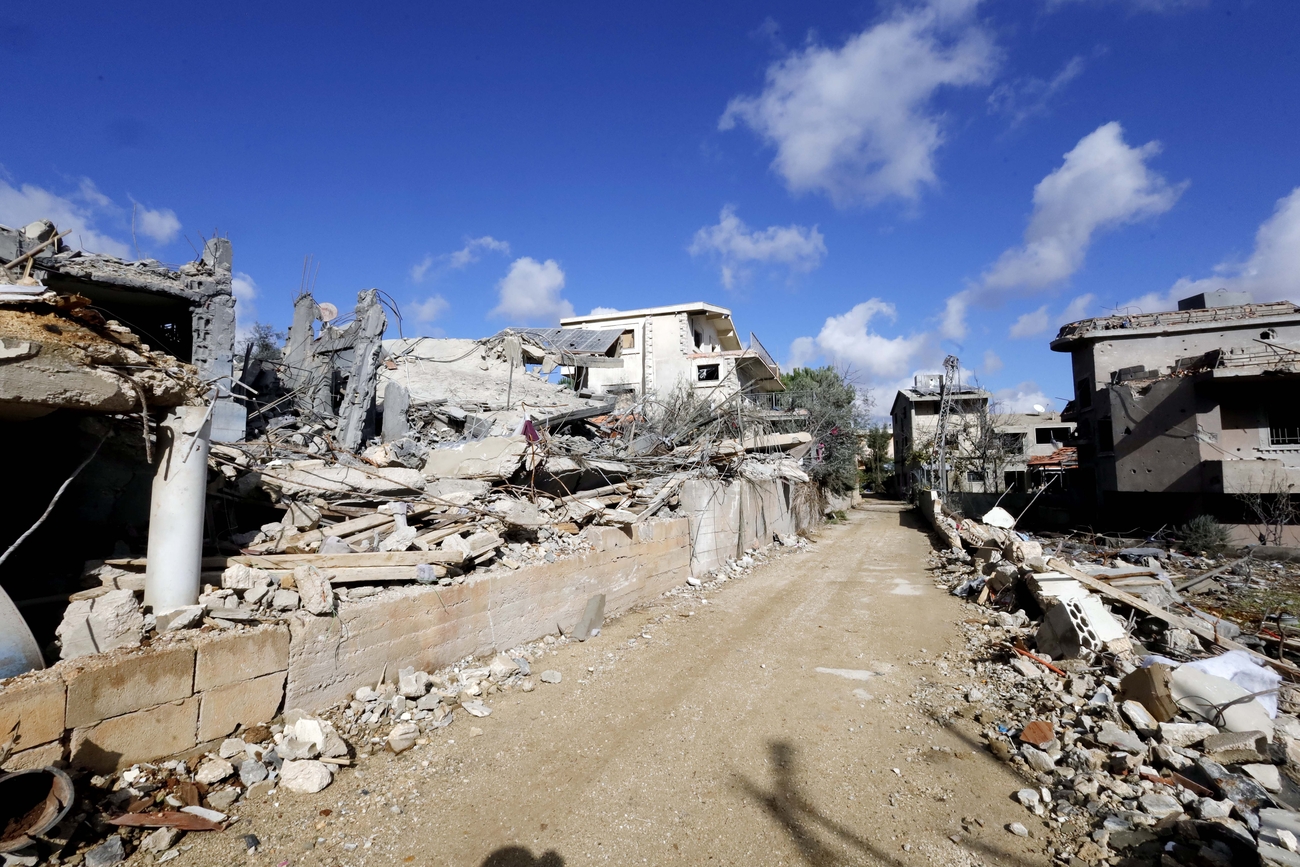
Destruction from Israeli strikes on Alma el-Chaab on December 14, 2023. (Marwan Bou Haidar/The Public Source)
After more than 300 days of war, nearly 100,000 people are displaced from their homes in south Lebanon, over 500 are dead, and thousands have been wounded. Just 1 percent of the displaced are housed in government-run collective shelters set up in Sour, Hasbaya, Nabatieh, and Saida. As of last month, the electricity utility did not have a specific contingency plan, while the caretaker economy minister says the country has just four to six weeks worth of diesel left. And though some ministries and state-owned enterprises have developed their own plans under the government’s overarching framework, the public is in the dark about most of them. The government has estimated that it needs $50-100 million per month for three months in a moderate or worst-case war scenario and is seeking international donor support, which may not be forthcoming in the required amounts. Over the past ten months, donors have given Lebanon just a third of the $74 million sought by the government.
Many Lebanese are uncertain whether the government is capable of stepping up to ensure not only that the displaced and wounded have access to basic services but also that basic necessities like internet, water, electricity, and food are secured in the event that the war escalates dramatically.
State-owned internet and landline provider OGERO has said it has multiple contingency plans in place, but Caretaker Telecoms Minister Johnny Corm and other stakeholders have not released these to the public. OGERO's head recently called the network “dilapidated and outdated” but added that it wasn’t significantly impacted by Israeli shelling in the South because it is underground. OGERO did not respond to requests for comment.
In October 2023, the government unveiled its National Emergency Plan, which was based on a scenario in which a full-scale Israeli aggression on Lebanon displaces one million people, lasts 45 days, and includes an air and sea blockade similar to the one Israel imposed in 2006. Much of the plan deals with ensuring that fuel, wheat, and other basic resources are adequately stockpiled to endure an Israeli blockade. It also called for the development of improved coordination mechanisms between government institutions, UN agencies, NGOs, and private companies in the food, energy, healthcare, and water sectors. An updated document from August 7, seen by Reuters, says the government would need $50 million per month for three months in a moderate scenario of 250,000 people displaced, and $100 million per month for three months in a worst-case scenario of one million people displaced, which the government does not have the ability to pay for itself.
Healthcare is at the forefront of the emergency planning, and the Public Health Ministry has been among the most active, activating a crisis center to coordinate between hospitals and ambulance services, providing trainings and distributing hospital supplies, monitoring casualties, and distributing medication to displaced people. The Public Health Ministry said last week it had distributed over 100 tons of medical supplies to hospitals since the start of the war, and covers the medical bills of war-wounded, based on a special $11 million budget allocation made for that purpose. It also received an additional 32 tons of medical supplies from the World Health Organization on Monday. According to the ministry, the healthcare sector has enough supplies for four months in the event of a war and blockade. Lebanon’s hospitals can reportedly accommodate up to 4,000 patients at once.
Hicham Fawwaz, head of the Hospitals and Clinics Department at the Public Health Ministry, told The Public Source he is confident in the healthcare infrastructure in Lebanon, noting that on August 4, 2020, the capital’s hospitals treated more than 6,000 people in one evening, while also acknowledging that the economic crisis and emigration of medical workers has taken a toll. “But despite all the financial, material, and economic challenges, we are, God willing, with our improved training and improved capabilities, able to overcome the difficulties.”
The economy ministry estimates food supplies available in the country at three to four months, although much of that could spoil if fuel for generators runs out first.
Perhaps the biggest outstanding question, besides fuel, is how the government would handle mass displacement. The cabinet’s October plan says government shelters can house up to 200,000 people — a far cry from the roughly 1,300 living there today. The vast majority of the displaced are currently arranging their own accommodation with host families, with a minority also renting at exorbitant cost.
August 2, 2024 "Between Us Are the Days, the Nights, and the Battlefield" Haret Hreik
Torn concrete and twisted metal jut out from an apartment building in Haret Hreik the day after an Israeli drone strike killed seven people, including Hezbollah commander Fouad Shukr. Meanwhile, a youth football team mourns teammate Hassan Fadlallah, 10, who was one of two children and five civilians killed in the strike. His sister Amira, 6, was killed alongside him.
Hezbollah confirmed Fouad Shukr's death on Wednesday evening, after approximately 24 hours of civil defense operations to locate him in the rubble. On Thursday Hezbollah Secretary-General Hassan Nasrallah gave an address in which he said that a retaliation for the strike was certain but did not specify the nature of the retaliation or its timing. "The enemy and those behind the enemy must inevitably await our coming response," he said, "there is no discussion or dispute on this and between us are the days, the nights, and the battlefield." For now, the Lebanese people are waiting for the next stage of the war.
July 31, 2024. Haret Hreik, Beirut, Lebanon.
July 26, 2024 All Aboard? Karantina
Passengers ride, some of them for the first time, Beirut’s new state-backed transportation offering—a bus from Nahr el-Mout to the Military Bath. The state Railways and Public Transport Authority (OCFTC) and the private company that recently received a renewable four-year contract to operate the buses, Ahdab Commuting & Trading Company, plan to expand service within Beirut and north to Tripoli, south to Sour, and east to Chtoura over the coming months. A previous attempt by OCFTC to operate the buses itself, in December 2022, foundered in just weeks due to a lack of funds.
Three passengers told The Public Source they prefer the new buses to the existing informal vans and buses that, along with shared taxis, currently provide Beirut’s shared transportation. “The vans are crowded, here there’s no crowding,” said Ali Hussein, as he rode the route still plied by Number 15 private vans and buses. Zafer Salim Kashlan agreed, adding that it is preferable to have a “proper and organized system” for public transport. The buses are also designed to be wheelchair accessible, but The Public Source did not see the wheelchair ramp in action.
But not everyone is happy. On the first day of the new service, July 10, several people vandalized the new buses, damaging one. Caretaker public works minister Ali Hamie and Ahdab president Aouni Ahdab implied the vandals are tied to the existing transport sector. “We didn’t learn from previous experiences,” transport activist Chadi Faraj, of Riders Rights, told The Public Source, saying they had long anticipated “conflict and unfair competition between the existing informal sector… and the state sector” and pointing out that the state is providing resources to Ahdab as a private company that it does not provide to other companies that operate in the existing sector. “All states globally do policy integration between the two sectors to create a kind of justice,” he said. “Unfortunately, we didn’t learn from that.”
Beirut, Lebanon. July 24, 2024. (Marwan Bou Haidar/The Public Source)
July 19, 2024 Martyrs of "Zionist Treachery" Bint Jbeil
Family, friends, and other mourners gather to mourn Amr, Fawziya, and Taghrid Dagher, three siblings killed by a July 15 Israeli strike on their home in Bint Jbeil. All three siblings were known and well-liked shopkeepers in their community. Hezbollah mourned Amr Jamil Dagher as a fighter.
In the third photo, Ghazi Dagher, brother of the three siblings, looks through the wreckage of their home, which Israeli occupation forces completely destroyed. The occupation forces have killed over 500 people in Lebanon, including over 100 civilians, since the start of the war, according to The Public Source's count.
Bint Jbeil, Lebanon. July 16, 2024. (Zeina Hariri/The Public Source)
July 12, 2024 Inevitable Return Adloun
Mahmoud Hourani, whose parents fled Tarbikha, looks at his family papers. "I would often see my father sitting under a tree, tears in his eyes, reminiscing about the old days in Tarbikha and all that we've lost," he tells The Public Source.
Over a hundred years after Britain and France redrew the Lebanon-Palestine border lines and 76 years since the Nakba, which included the ethnic cleansing of dozens of villages that were once inside Lebanon, journalist Dana Hourany speaks to former residents of border villages that were stolen by colonial powers.ㅤ
Adloun, Lebanon. March 16, 2024. (Rita Kabalan/The Public Source)
July 5, 2024 "Palestine from Lebanon" Damour
Twenty-one communist and workers' parties from around the world hold a working group meeting in preparation for a broader congress of the parties next October to be hosted by the Lebanese Communist Party, which is celebrating its centennial next year.
At the meeting the parties issued a collective statement condemning "the genocidal war waged by the Zionist entity against the Palestinian people in Gaza, and the criminal attacks in the West Bank and Jerusalem, and against Lebanon and the peoples of the region" as well as US and NATO support for Israel.ㅤ
Damour, Lebanon. June 29, 2024. (Marwan Bou Haidar/The Public Source)
June 28, 2024 The Warfront South Lebanon
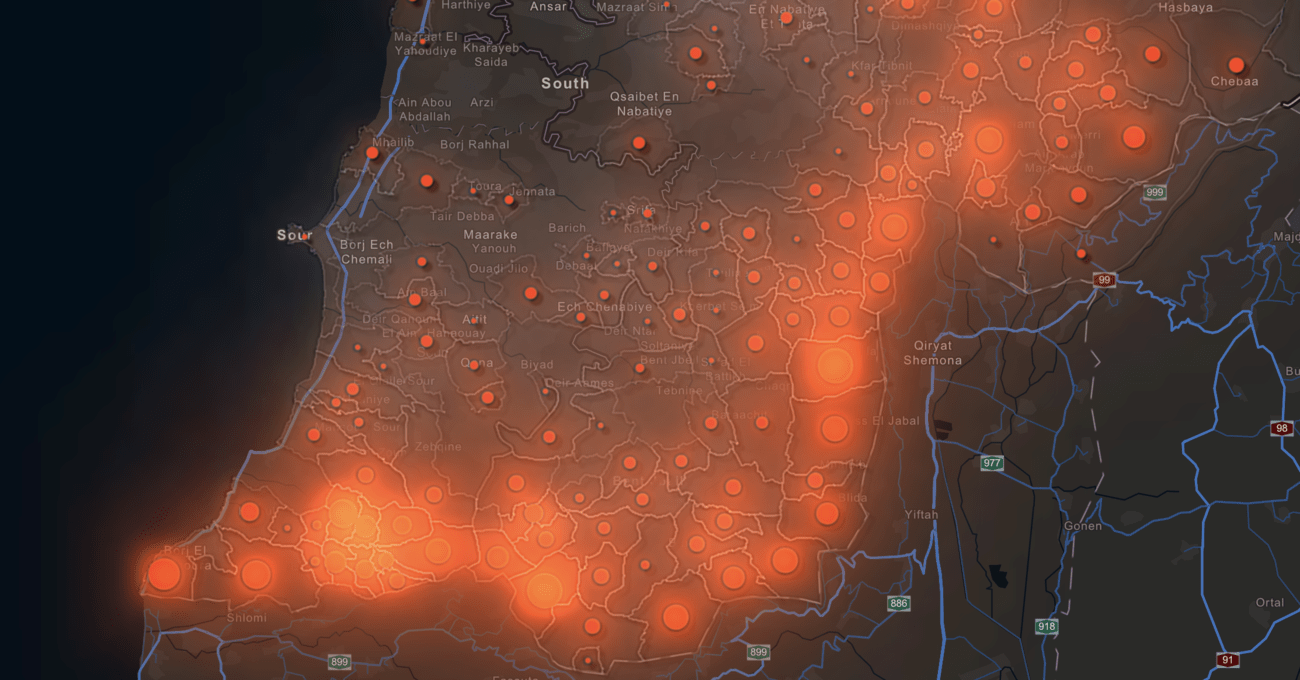
A map from the National Council for Scientific Research shows the latest available data on Israeli attacks in southern Lebanon since October 8, 2023.
Israeli occupation forces have conducted at least 5,800 attacks across multiple Lebanese regions since October 8, according to the Armed Conflict Location & Event Data project, killing more than 450 people. Israel has destroyed more than 3,000 houses and damaged more than 12 million square meters of agricultural land, according to the Council for the South, and is threatening to further intensify and expand its attacks on Lebanon.
Beirut, Lebanon. June 26, 2024. (CNRS)
June 21, 2024 Beirut Port Explosion Justice Denied Justice Palace
Families of victims of the Beirut port blast demonstrate and burn tires in front of the Justice Palace in Beirut, on June 3, demanding that authorities complete the long-stalled investigation into the devastating explosion almost 4 years ago.ㅤ
Yesterday the families returned saying, in the words of lawyer Cecile Roukoz, who lost her brother, "This fire you see here, our siblings burned in it... we won't leave and we won't let you relax until you move forward with the file of the Beirut port investigation."
The investigation has been stalled, again, since January 2023, when former prosecutor at the Court of Cassation Ghassan Oueidat instructed judicial police not to comply with summons issued by investigative judge Tarek Bitar.
Beirut, Lebanon. June 3, 2024. (Marwan Bou Haidar/The Public Source)
June 14, 2024 "I'll Answer Your Question With a Story" Barzakh, Hamra
Guest Post by Farah Kanaan
Indian author Arundhati Roy speaks with Lebanese historian Fawwaz Traboulsi about writing from within and in solidarity with the revolutionary movements and people in India.
During the conversation at Barzakh Bookshop, Roy commented that people are continuously trying to redefine the job of the writer, by calling writers like her activists, simply because they write about things that matter to people. While policymakers spend a lifetime trying to develop a language that masks thought, “where every word [they] use means the opposite,” she said, “writers spend a lifetime trying to close the gap between language and thought.”ㅤ
“That is what novels try and do; they create that universe and invite you to try and live in it, or make sense of it.”ㅤ
Roy and Traboulsi also discussed India’s recent elections and her fear of India becoming the next Israel, the dangers of capitalism and neo-imperialism, and the whitewashing of Gandhi.ㅤ
Following the exchange between the two writers, audience members raised questions about Roy’s position on Palestinian armed resistance. “I believe in what I call a diversity of resistance and I am one of the greatest admirers of how Palestinians have resisted this occupation,” she said in response.
Barzakh Bookshop, Hamra, Beirut. June 10, 2024. (Marwan Bou Haidar/The Public Source)
June 7, 2024 Adam Arrives in Beirut Beirut
The Ghassan Abu Sittah Children's Fund holds a press conference in Beirut to share updates on Adam Afana, a five-year-old boy who suffered serious injuries when Israeli occupation forces bombed his home in Jabalia on October 29, killing several family members. Adam arrived to Beirut on May 27 and is the first child to come from Gaza to Lebanon for medical treatment.ㅤ
The Fund, created last winter in response to Israel's systematic destruction of Gaza's healthcare infrastructure over the past eight months, says it plans to treat 50 children at a time in Lebanon, in partnership with the American University of Beirut Medical Center and eventually other Lebanese hospitals.
Beirut, Lebanon. June 5, 2024. (Marwan Bou Haidar/The Public Source)
May 31, 2024 "Sound and the Fury: Living With Noise Pollution in Beirut" Bonus Photos Mar Mikhael
Excerpt from "Sound and the Fury: Living With Noise Pollution in Beirut"
Nammour tells The Public Source that justice is not accessible to everyone. The residents of Mar Mikhael are facing people who have much more money than they do.ㅤ
“Before Mar Mikhael got gentrified, it was an industrial sector of the city,” he explains. “Most of the families who used to work in those factories lived in that area. And this is why they cannot really afford a legal battle.”ㅤ
Pierre, 61, lives in his old family house facing the Électricité Du Liban building in Mar Mikhael. “The house shakes because of the different noises,” he tells The Public Source while pointing to the cars from his balcony.
Bonus photos by contributing photojournalist Rita Kabalan.
May 24, 2024 From the PFLP Bulletin Nabatieh
An Israeli military convoy in Nabatieh burns in late 1983 after reportedly opening fire on a crowd. In mid-October of that year Israeli forces fired on an Ashura commemoration in the southern city, wounding several civilians, according to the PFLP Bulletin, amid massive military and civilian resistance to the occupation ranging from guerrilla attacks to civilian barricades. In the face of determined resistance, Israel was forced to withdraw from most of Lebanon, besides the occupied Shebaa Farms, in May of the year 2000.
Credit: PFLP Bulletin, No. 69, 1983
May 17, 2024 76 Years of Nakba Beirut
Students and community members commemorate the 76th anniversary of the Nakba with a march from the American University of Beirut to the British Embassy.
Nakba Day is observed annually on May 15 in remembrance of the mass dispossession and ethnic cleansing of the Palestinian people, which led to the establishment of the Zionist state on the ruins of hundreds of depopulated villages in historic Palestine.
Students held banners calling for the boycott of the Israeli settler state.
May 15, 2024. Beirut, Lebanon. (Marwan Bou Haidar/The Public Source)
May 10, 2024 Israeli Aggression on Alma el-Chaab Alma el-Chaab
A destroyed home and vehicles in Alma el-Chaab on April 16, 2024. On April 16 Israeli warplanes conducted airstrikes on two houses in Alma el-Chaab, causing no casualties. The day before, the Israeli military fired artillery and white phosphorus shells in the area around the town, in addition to an airstrike. The Israeli military has struck Alma el-Chaab at least 175 times between October 10, 2023 and May 3, 2024, killing Reuters journalist Issam Abdallah and an estimated five Hezbollah fighters, according to data from ACLED.
Alma el-Chaab, Lebanon. (Marwan Bou Haidar/The Public Source)
May 3, 2024 Students Protest Gaza Genocide Bliss St.
Photo 1: Around 300 AUB students and community members rallied in support of Palestine as the global student movement against the Israeli genocide in Gaza spread from US college campuses to universities around the world, including Lebanon.
Photo 2: Students at AUB, LAU, and at least six other campuses held a day of action on Tuesday voicing support for Palestine and demanding their university administrations boycott companies and institutions that are complicit with the Israeli occupation. AUB students further called for full financial transparency.
Photo 3: “Stopping the genocide is a first step towards liberation, return, and decolonization,” reads a banner at AUB. Pro-Palestine protests on university campuses began on April 17, 2024 at Columbia University in New York, USA and have rapidly spread to more than 15 countries.
April 30, 2024. Beirut, Lebanon. (Marwan Bou Haidar/The Public Source)
